Dear Friends and Family,
SSSSNNNNRRRRRKKKKK
SSSSSSSSNNNNNNNRRRRRKKKKK-UUHHH-HUUUUHH
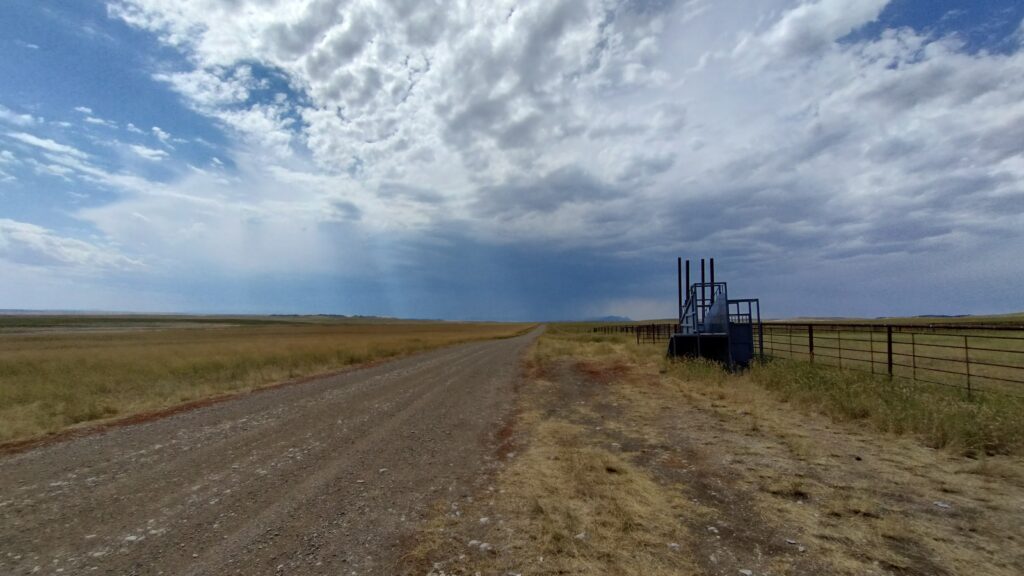
HUH???
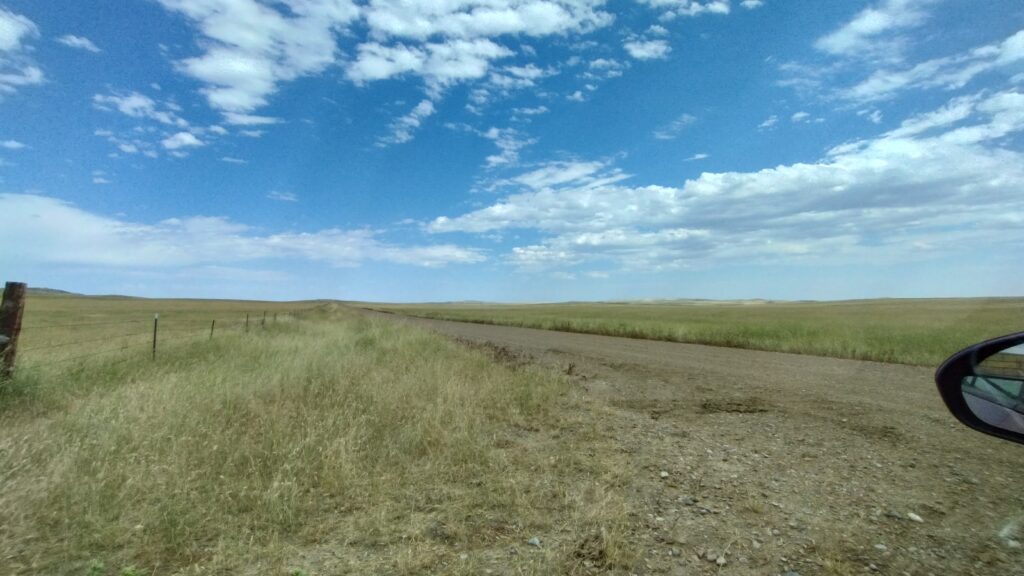
Where the hell am I???
In the latest step in my rambles across America, I arrive in arguably the most obscure location of the entire trip: Petroleum County, Montana.
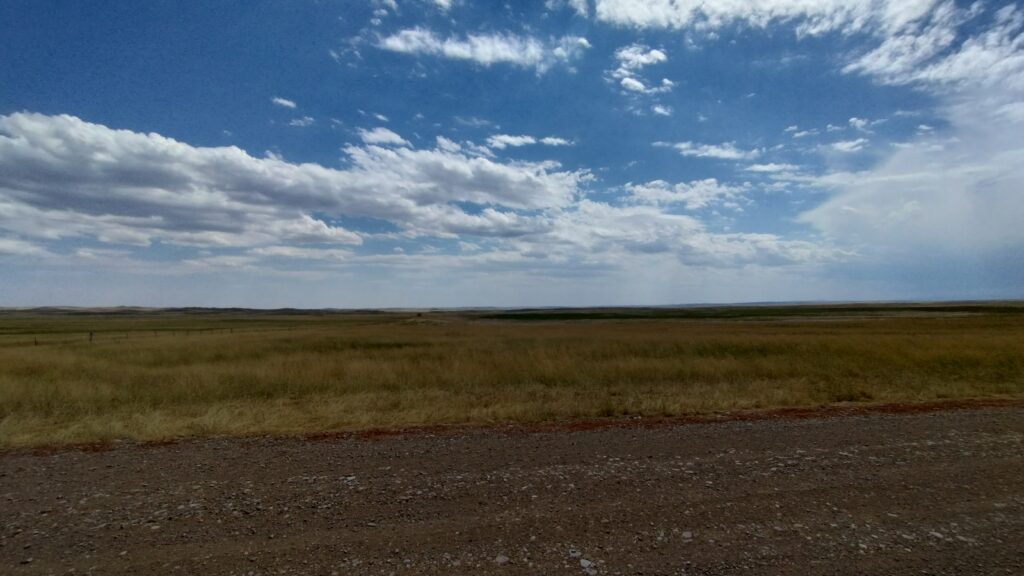
Dear reader, your question is heard loud and clear: what the hell am I doing here? Well, it’s a long story. Come with me as we venture into this corner of the great American desert.
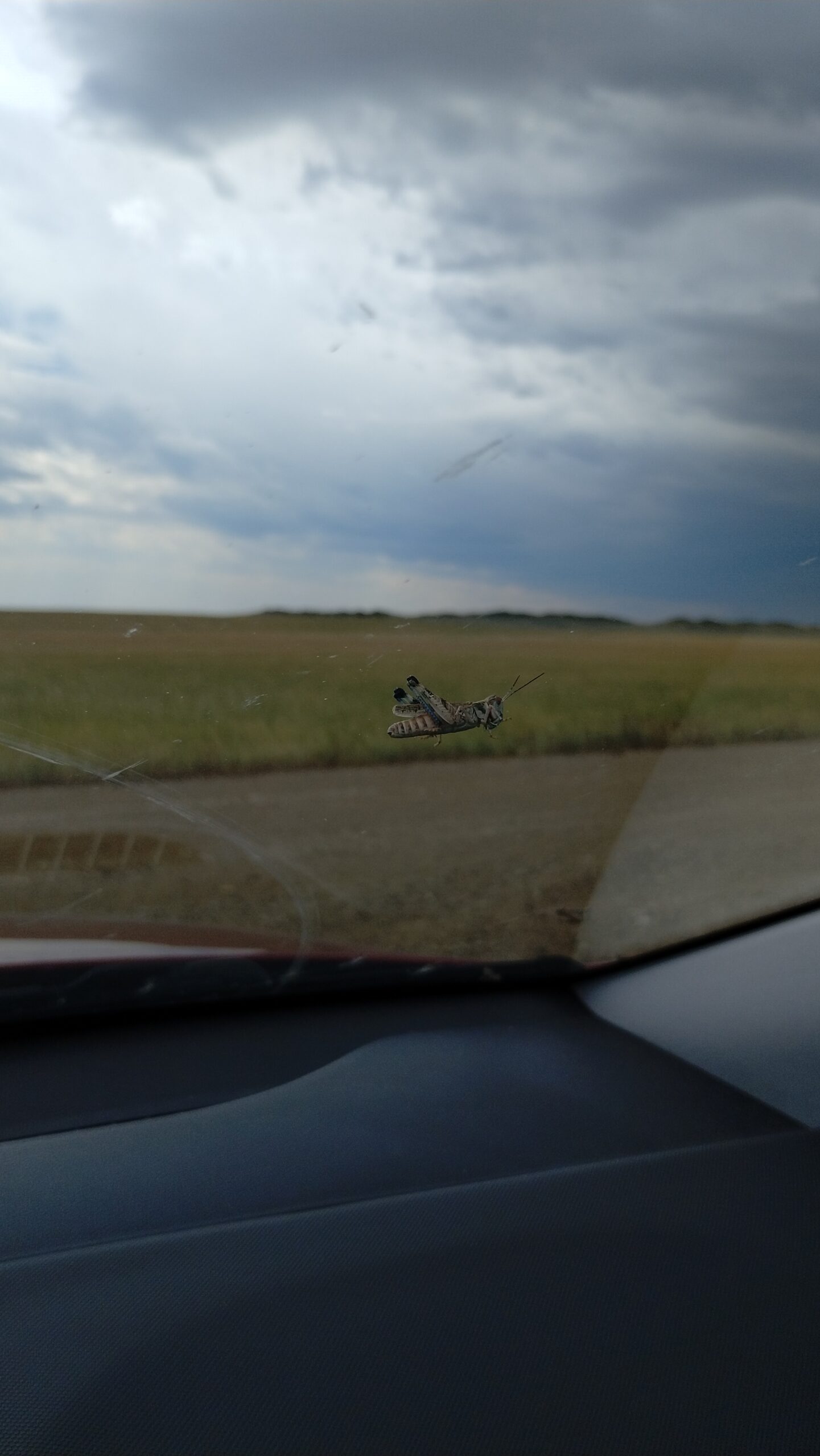
You and the grasshoppers can follow along together in my tale.
It is difficult to describe how remote and empty Petroleum County is.
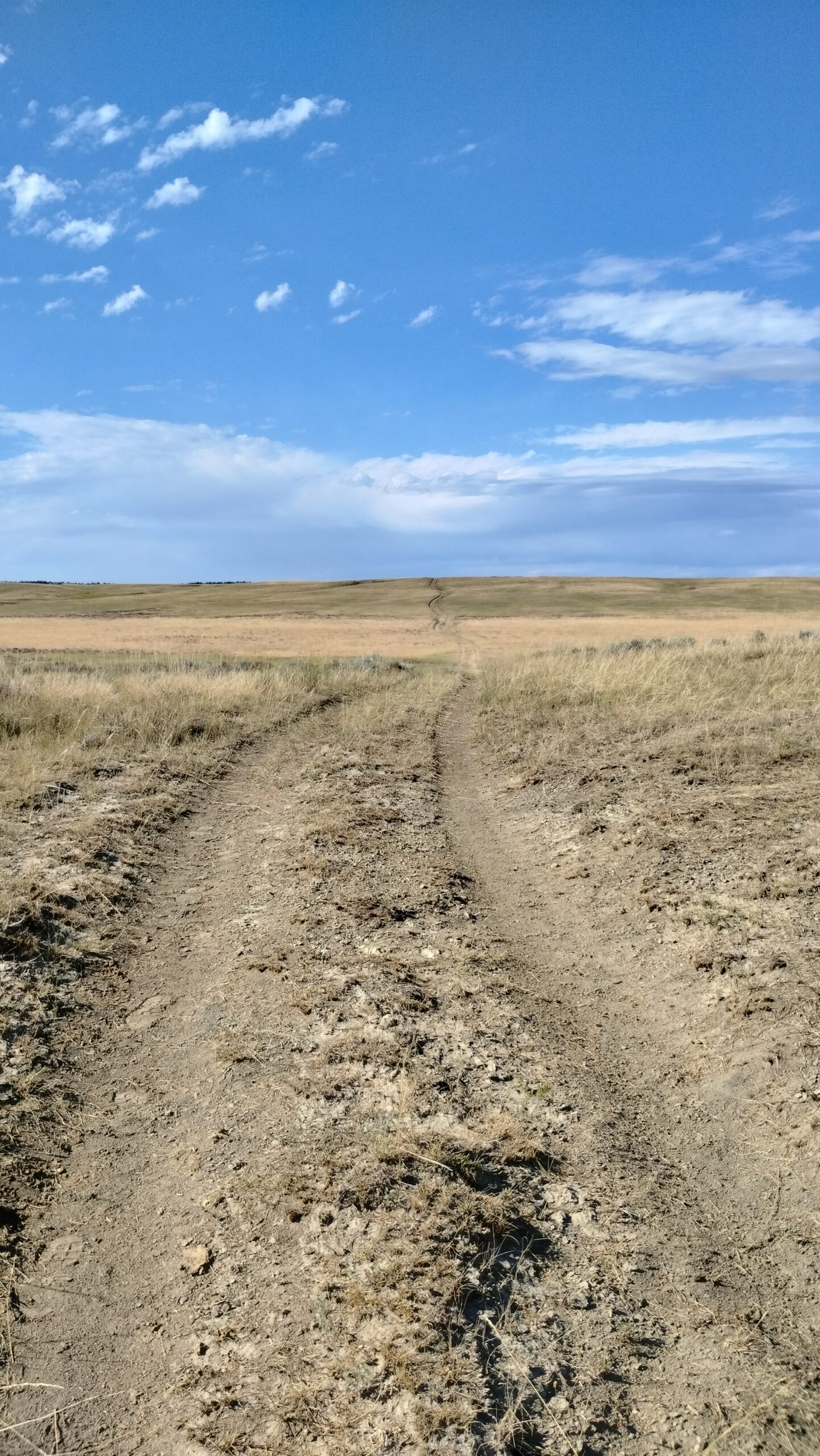
By the numbers, Petroleum County is the eighth least-populous county in the nation. Merely 519 people inhabit this swathe of land larger than the state of Connecticut. The county is crossed by only one paved road, a two-lane county highway which runs 180 miles east without intersecting a US highway, much less an interstate. All other roads are dirt, and lead to a few dozen ranches scattered throughout the area.
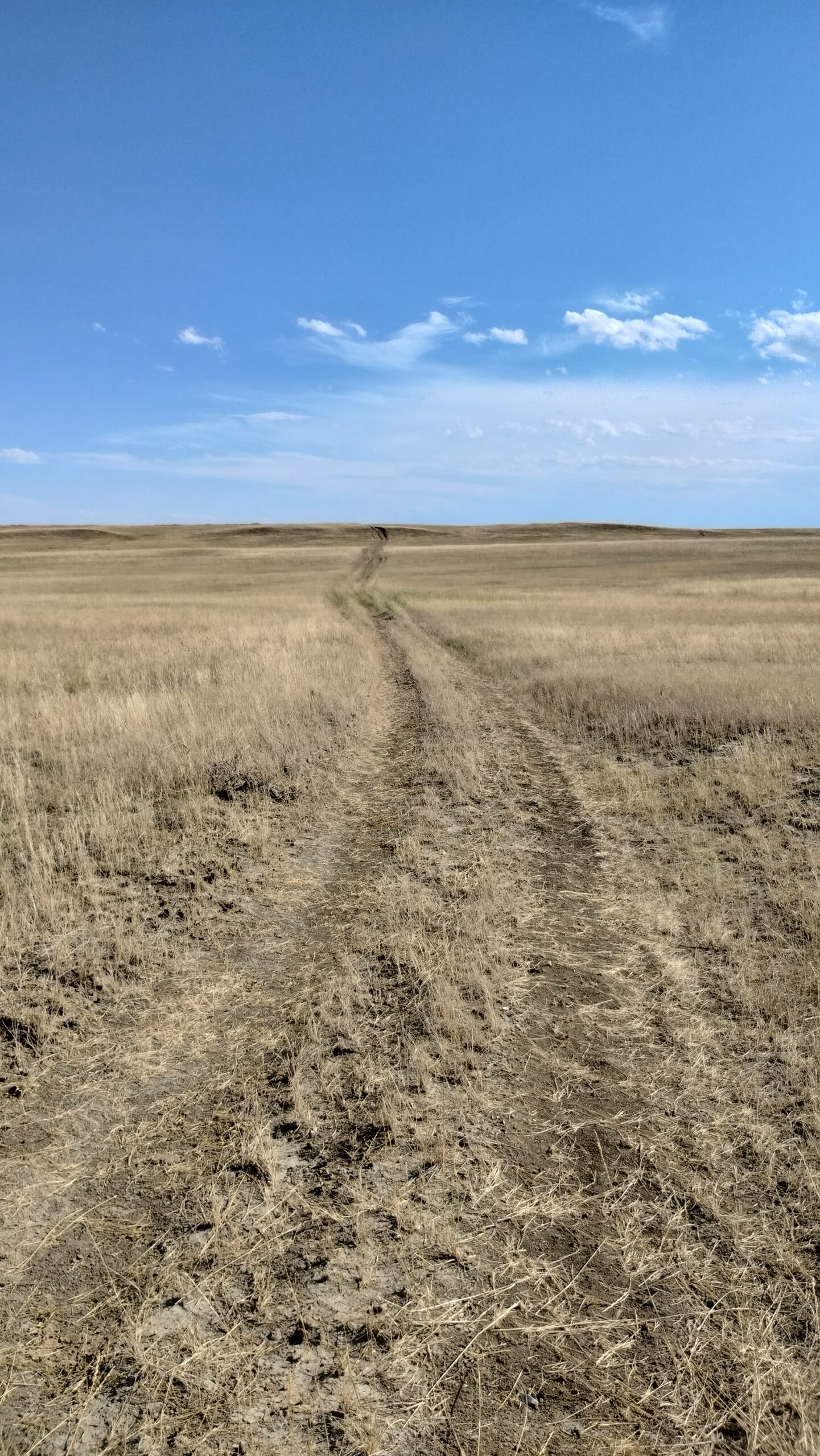
The county has no major landmarks and no discernible highpoints. The land stretches endlessly, like a desert, in all directions. There are no peaks, no highpoints, no ridges or valleys to break the monotony of the land. It is the platonic ideal of “Big Sky Country”, because the sky is the only thing somehow more endless and all-encircling than the Earth itself in this place.
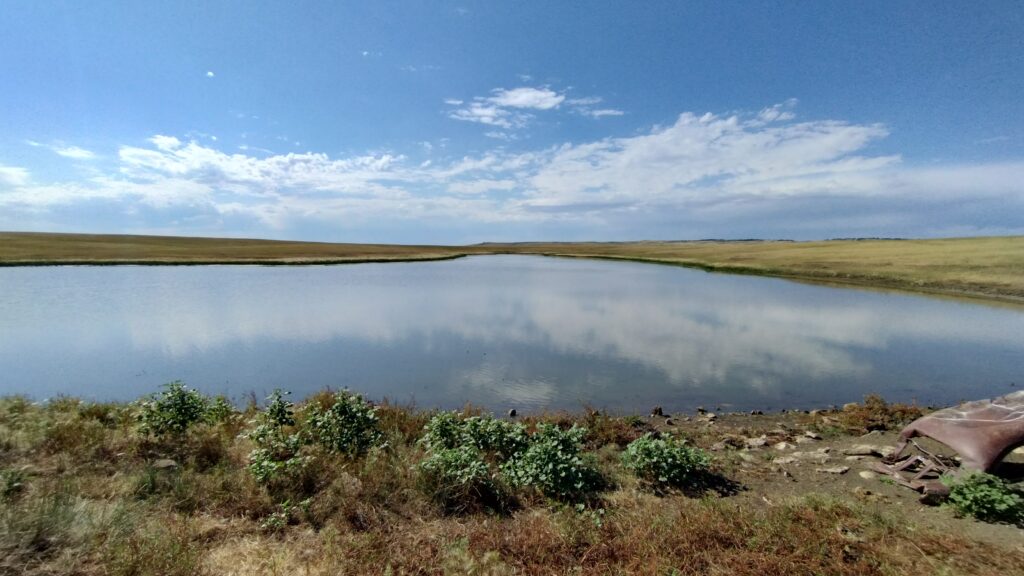
There are no major watercourses running through the county (although the Missouri River borders its northeastern corner). Two saline lakes, War Horse Lake and Wild Horse Lake, make up the only natural “feature” around, an empty stretch of in the War Horse National Wildlife Refuge. All other standing water, such as the ankle-deep pond seen above, are man-made stock ponds occasionally filled by seasonal rains.
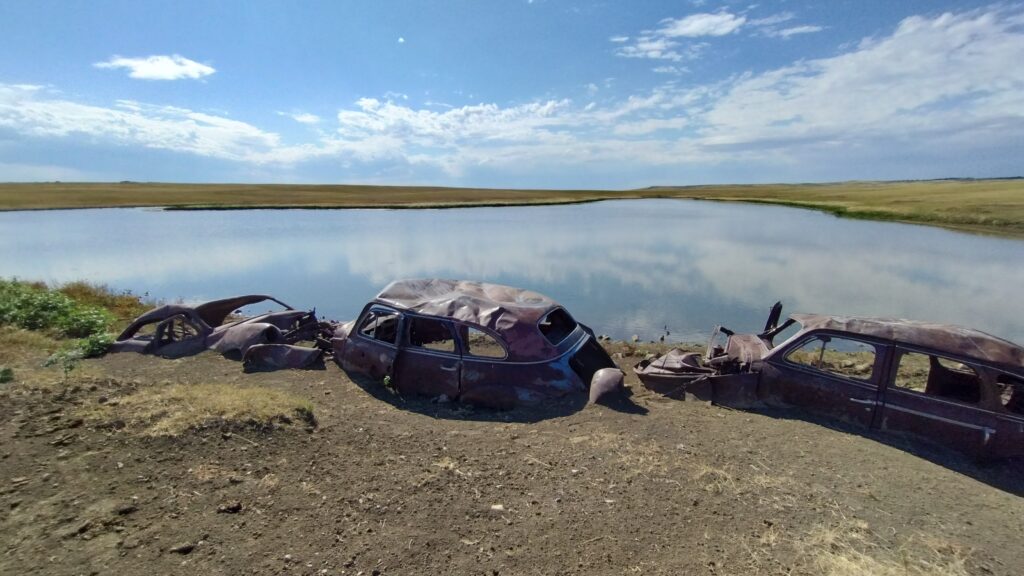
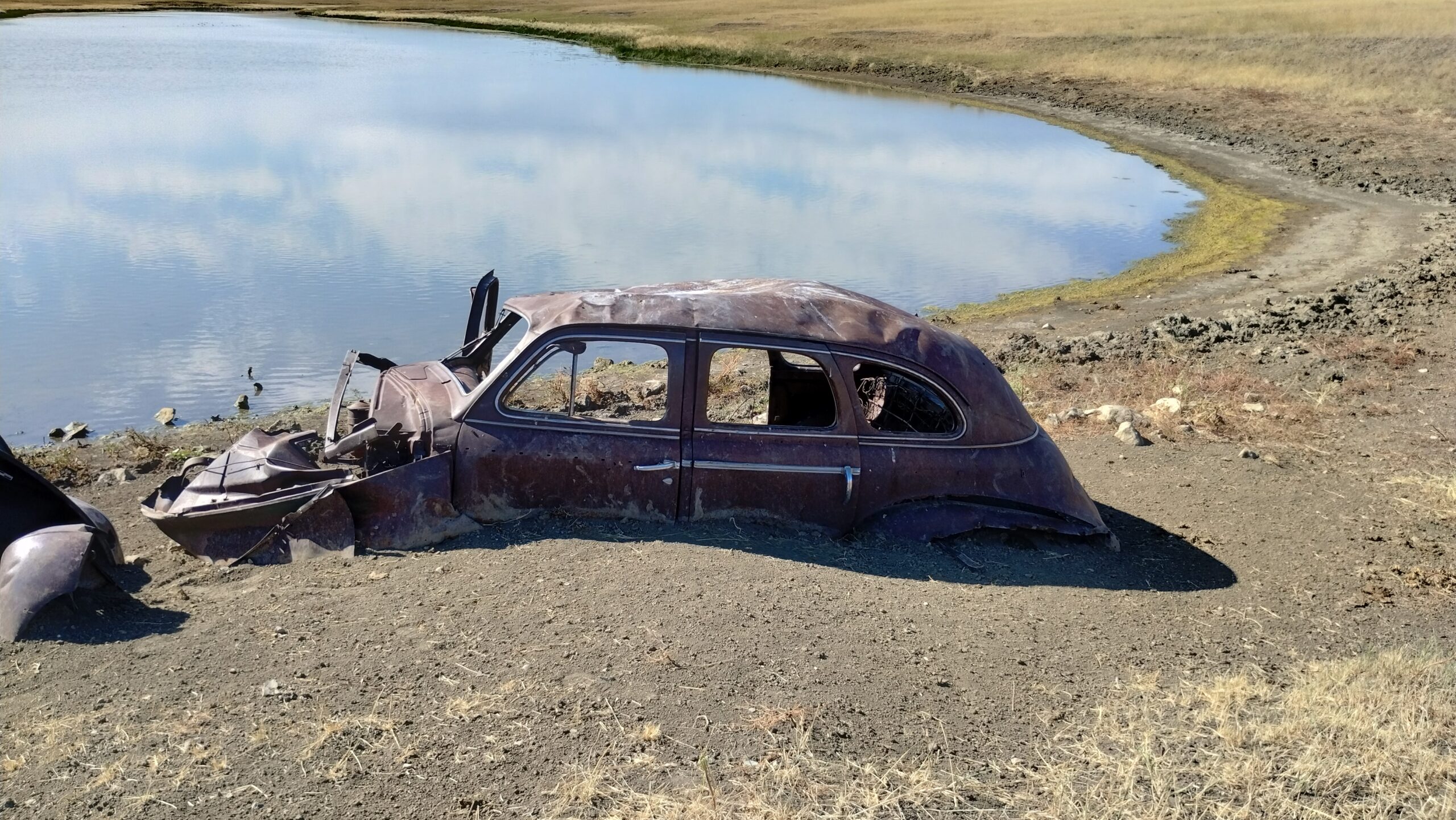
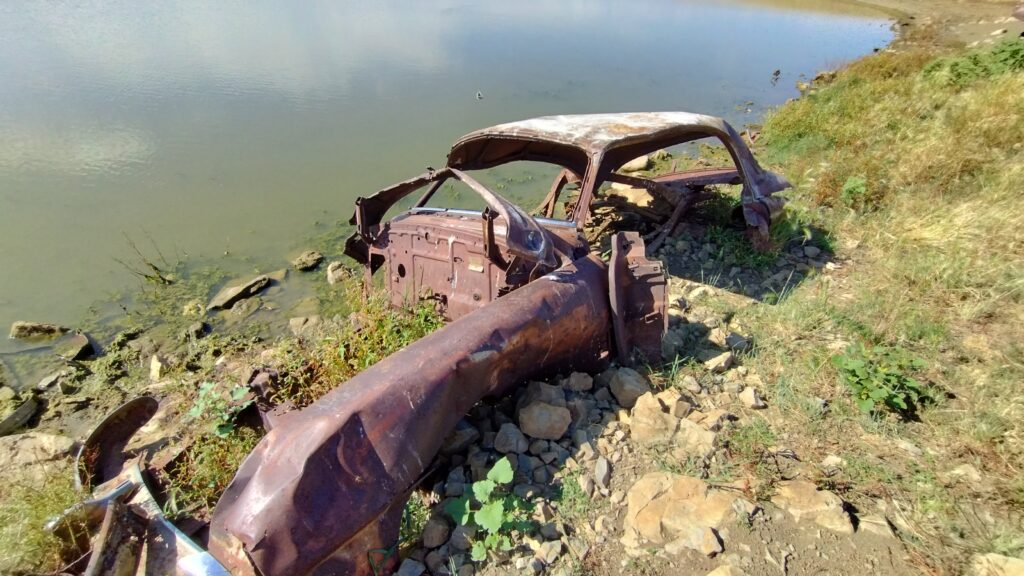
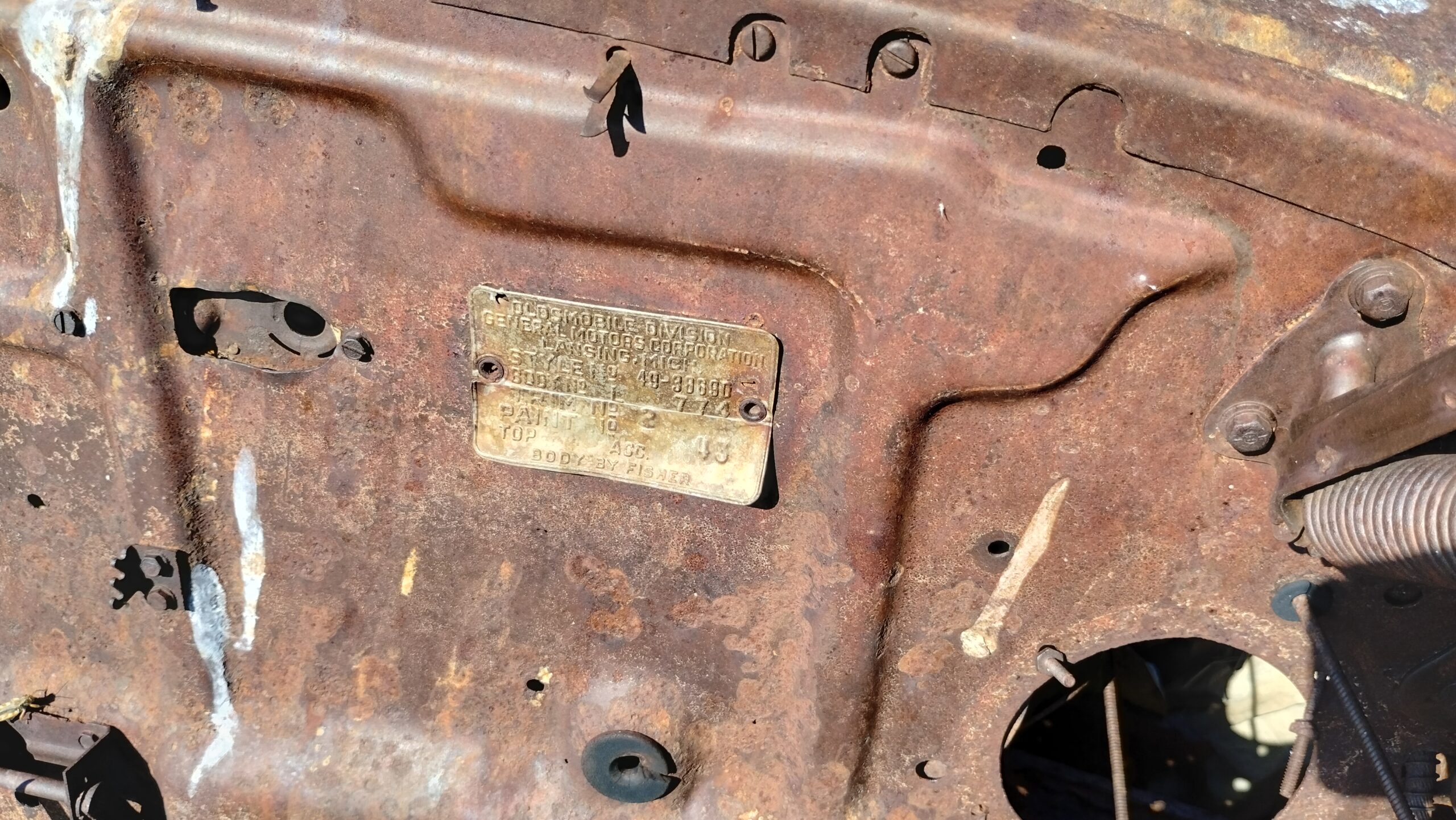
Embankment dams are made of whatever is lying around to help hold in the soil: in this case, a bunch of scrapped 30’s Oldsmobiles. Made in Lansing, no less!
Even during the days of its eponymous oil boom, Petroleum County never managed more than 2045 residents. The wells have since dried up and there are few to no pumpjacks anywhere. The “economy” is based entirely on ranching, and cows absolutely outnumber people in this part of the world.
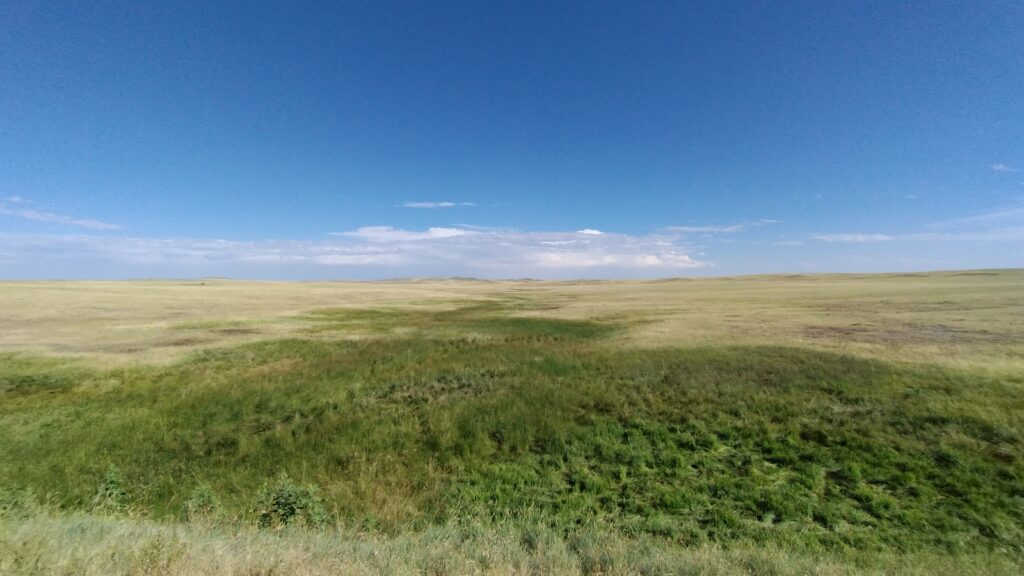
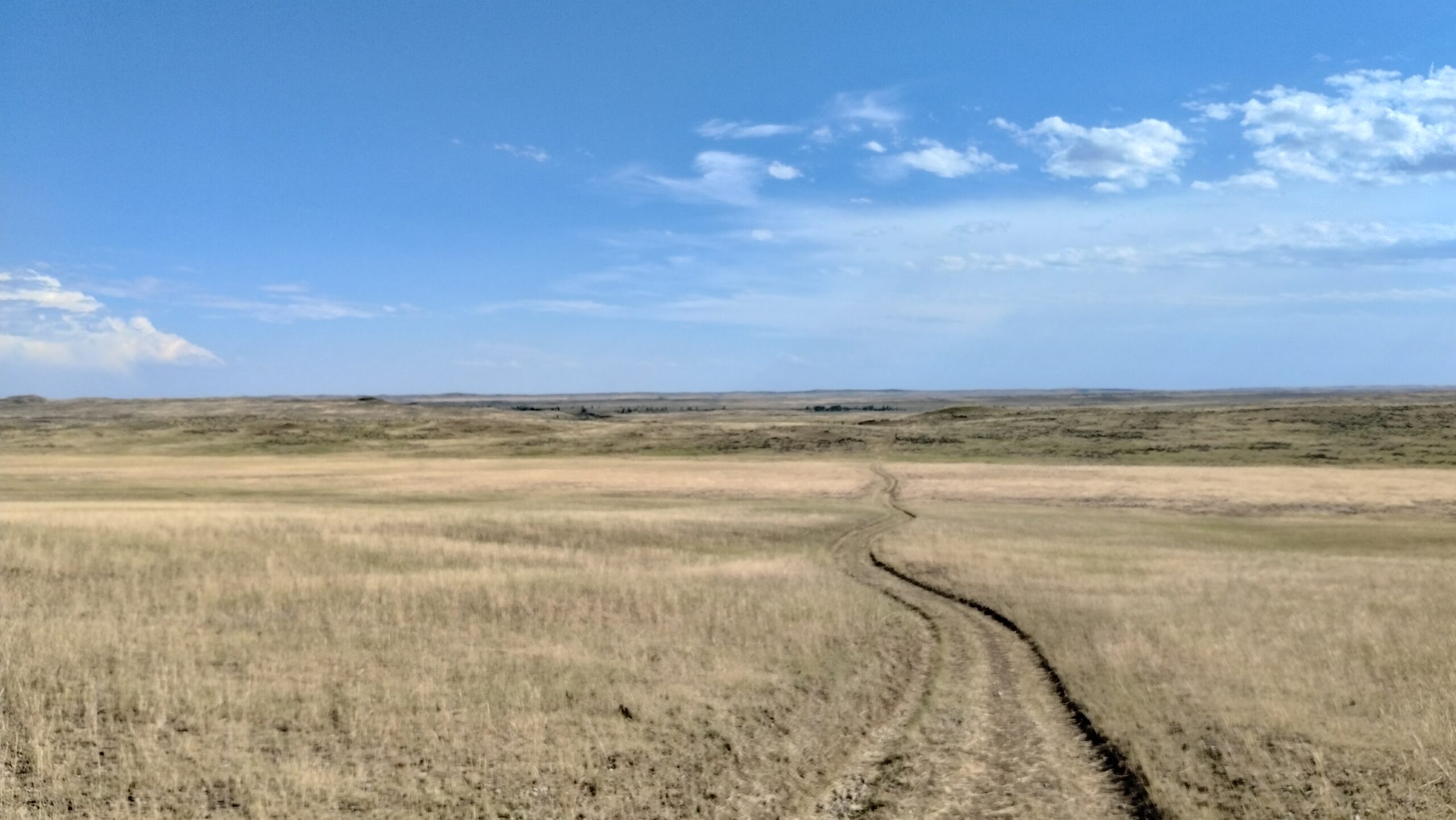
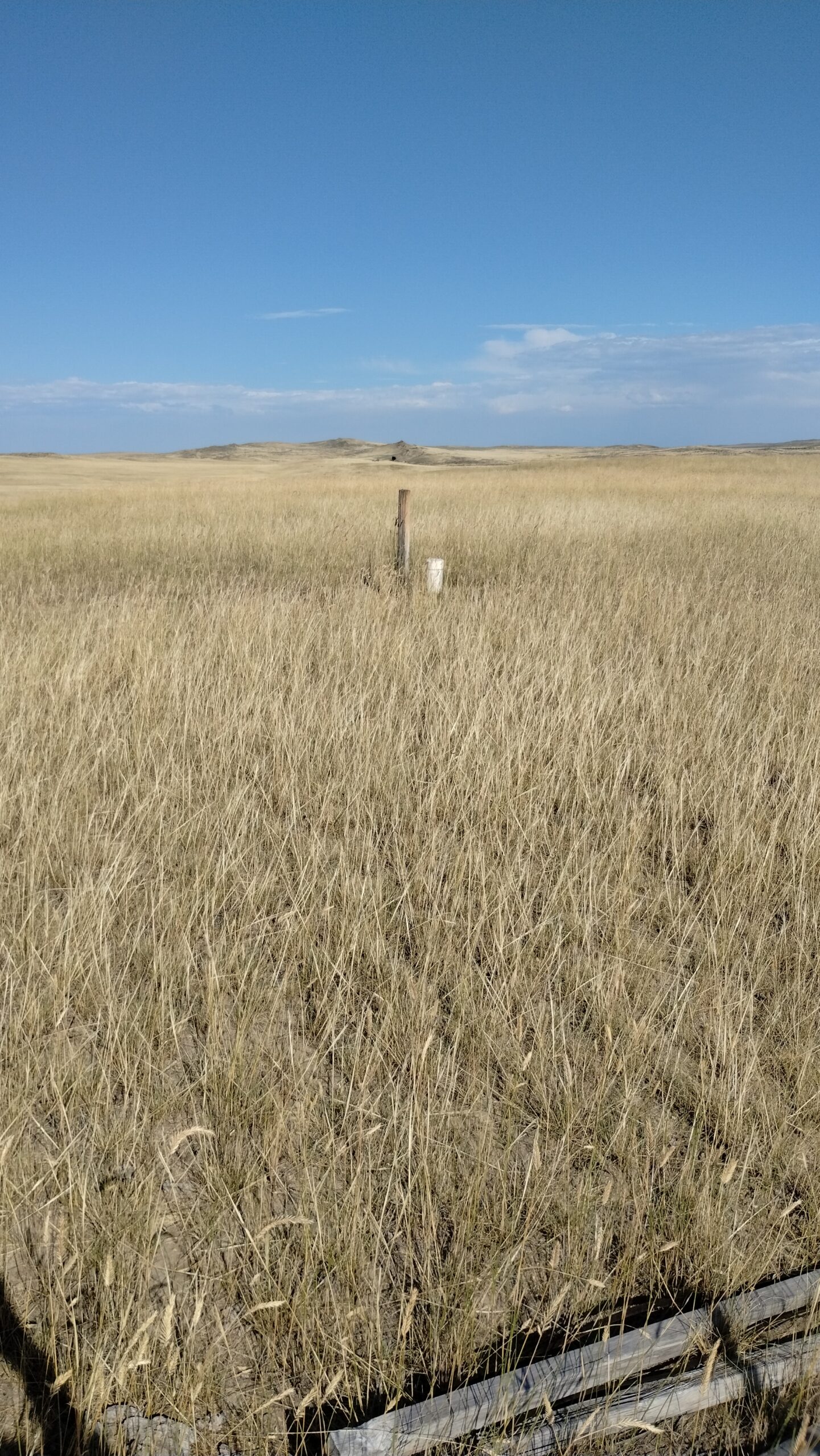
The only other large animal in the area (and even then, they rarely exceed 100 lbs) is the antelope, which can occasionally be seen pronking about. Even the cows are pretty sparse: the land only supports, on average, one cow per 50 acres, which makes it some of the least productive grazing land in the nation. I didn’t see a single one the entire time I was wandering down those empty and forlorn two-tracks.
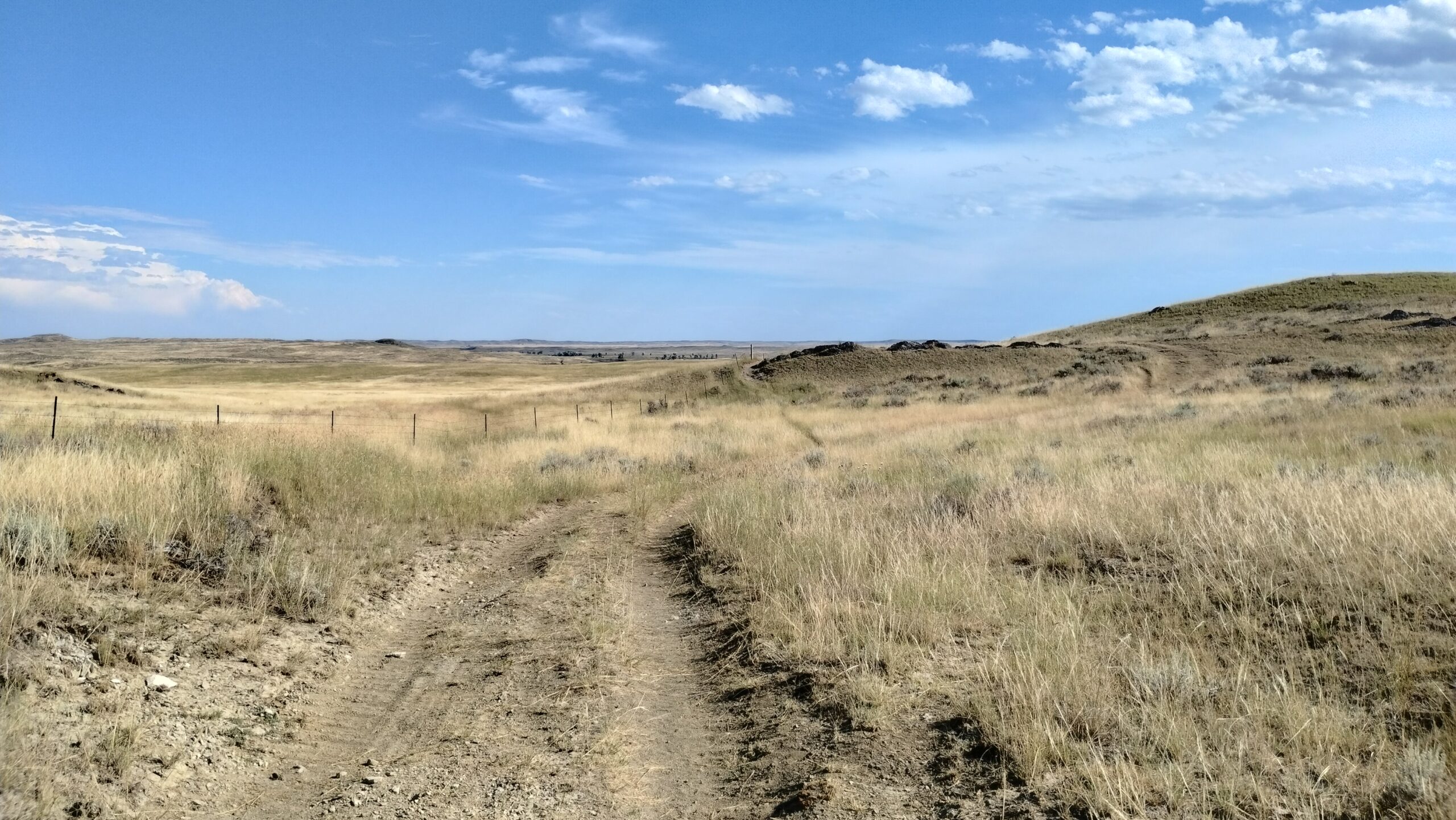
So what, and pardon my French, the fuck, did I have to do with this land?
Well, my family owns it. A little bit of it:
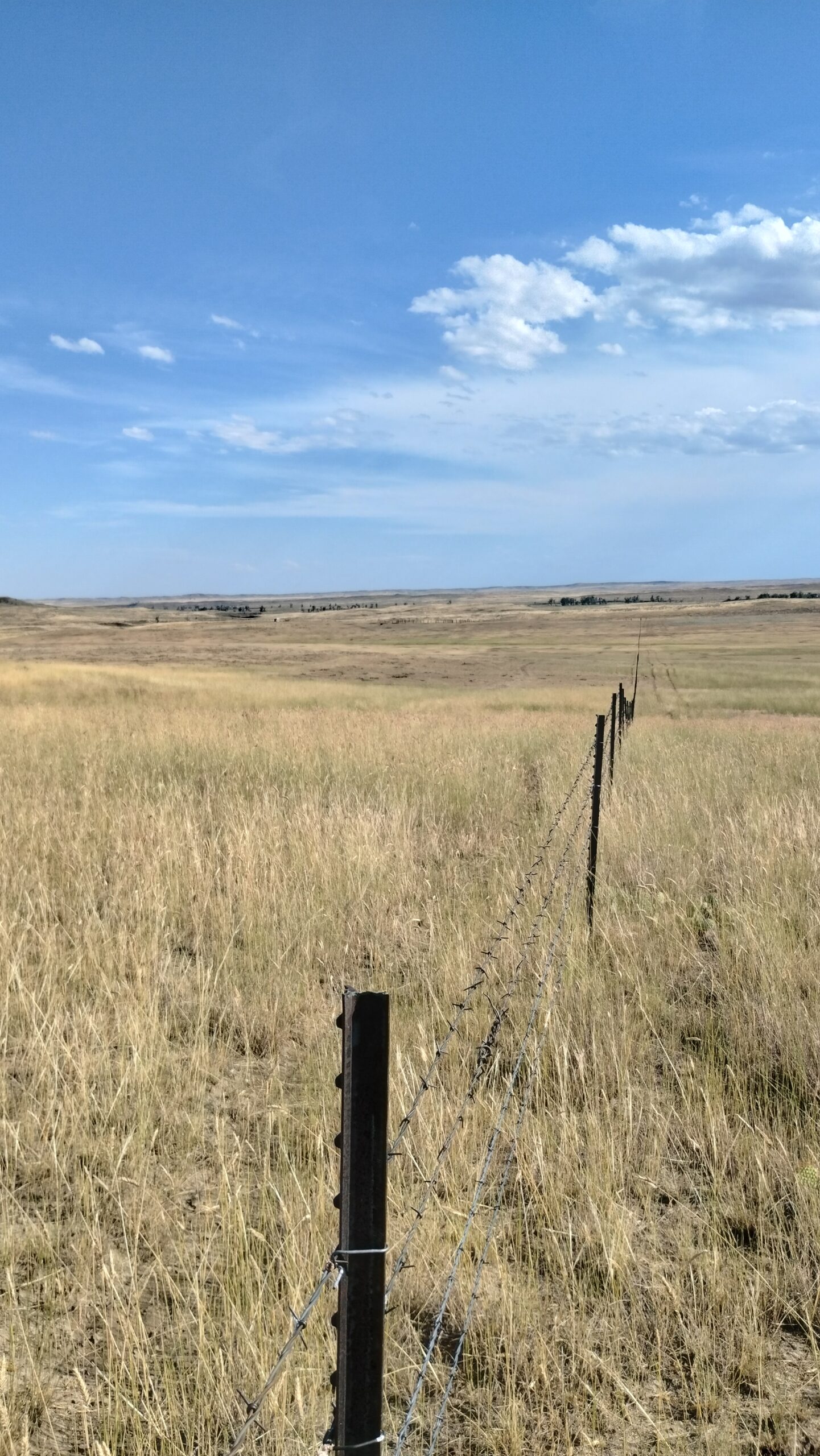
This bit of it on the left side of the fence, to be precise.
Way back in the early 1900s, some incredibly optimistic ancestors of mine decided to homestead out here, on 160 acres given to them for free by the government. Well, they tried to homestead it anyways, and were “starved out” after a handful of years. But the land stayed in the family, and was given by one of my great-aunts to my grandma, who passed it on to my father and my uncle.
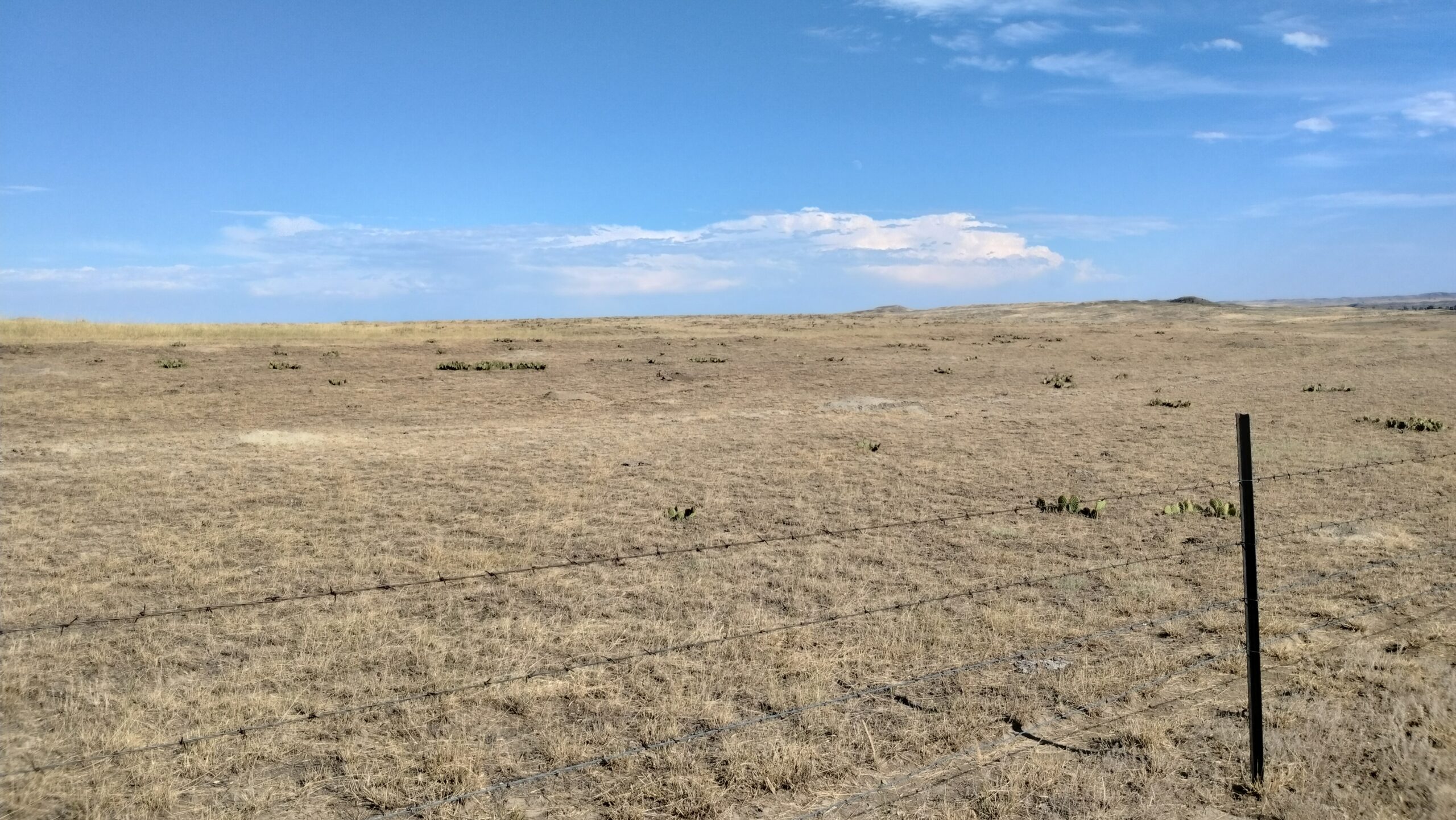
Nobody in the family saw that 160 acres for over 100 years. My grandma never visited it; my uncle Bill has never seen it either. When my Dad finally went out there in 2008 and shot an antelope, it was probably the first thing to happen there at all in a century. And if by driven by nothing else than curiosity, I wandered my way out to our little plot too on a mini-roadtrip I did back in 2020.
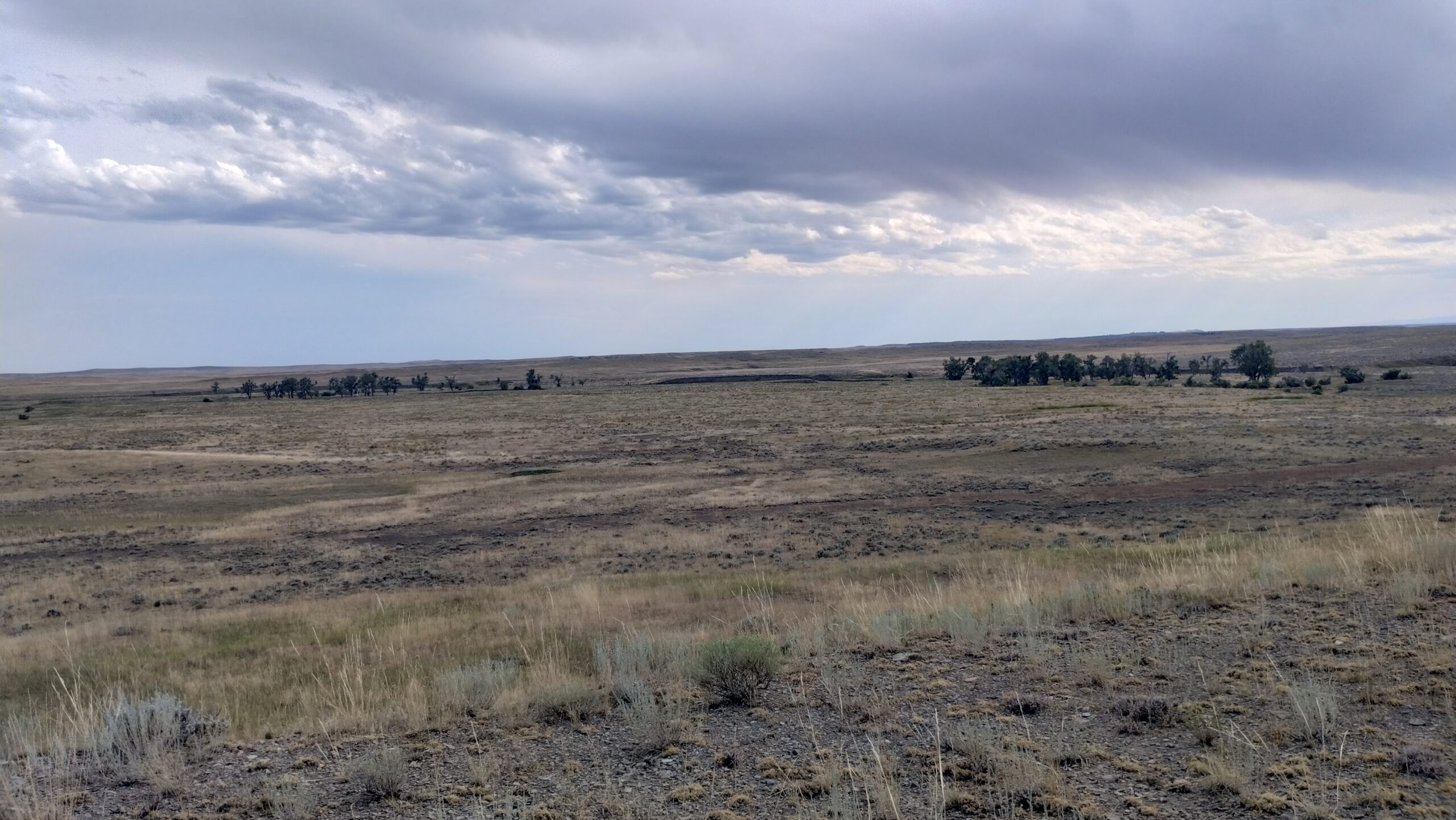
And you really do have to wander to get out there. The plot is 3 miles from the nearest road, with only one two-track to take you there. And somehow, I managed to make a friend along the way!
About a mile and a half into my walk towards the property, I heard a side-by-side ATV come rolling over a hill. I stopped my march and waited for the driver to come by. In the cab was a mid-50s woman who pulled up about 30-40 feet away from me. Our conversation went a bit like this:
“Hey, uh, hi. What are you doing here?” she said, justifiably confused why anyone would be this far from the road and in this part of the world.
“Hiya! Name’s Evan, and I’m hiking out the end of section 15.”
“Section 15? That’s on the other side of the fenceline, you’re on section 16 right now.”
“Ah shoot, I’m really sorry if I was trespassing! I was just following the two-track down to the gate.”
“Oh, don’t worry about that, it’s just state land on this side and BLM land on that side. You can roam anywhere you want. But why are you going down to the end of section 15?”
And so I proceeded to tell Carol, which was he name, this long and winding tale about how some randos from Michigan came to own 160 acres in the very middle of nowhere. She was surprised, but impressed, and pulled up an app that lets you check out the land deeds in the area.
“Huh, says a feller named Chuck Lee and another named Bill own it.”
“Yup, my Dad and my uncle.”
“Interesting, I always wondered who owned that corner! My kids ranch most of the BLM land on section 15. It’s quite a ways down there you know, probably another two miles.”
“Yeah, I was planning to hike down there and back for the day. Apologies for keeping you if you were busy!”
“No no, I was just going to check on some water tanks and whatever scared the cows in this area. I guess that was you.” She said. “Well, you seem friendly enough, you want a ride down there?”
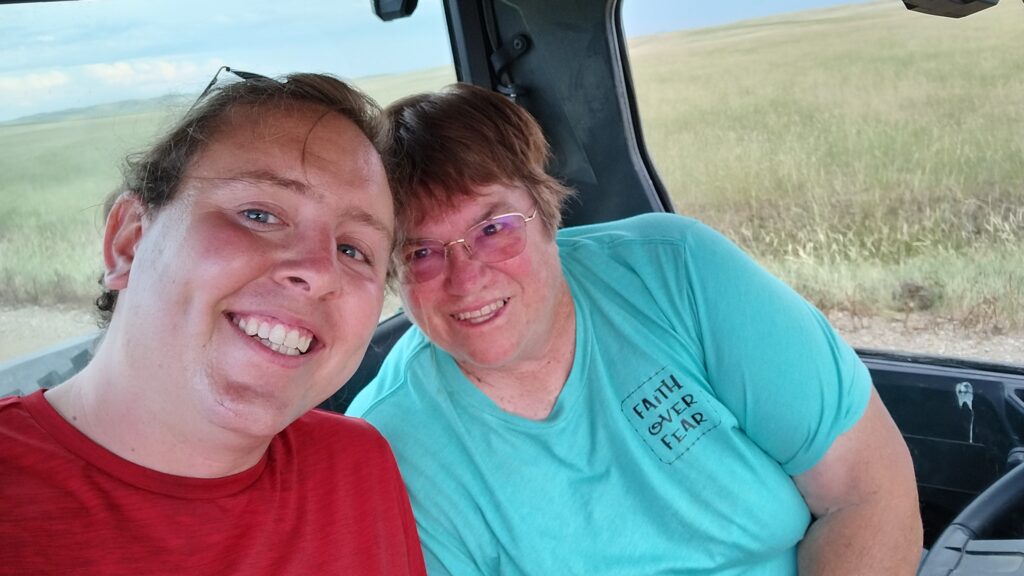
I took the ride 🙂
My Aunt Betty would remark on this when I saw her weeks later, saying: “Evan, to you, a stranger really is just a friend you haven’t met yet!”
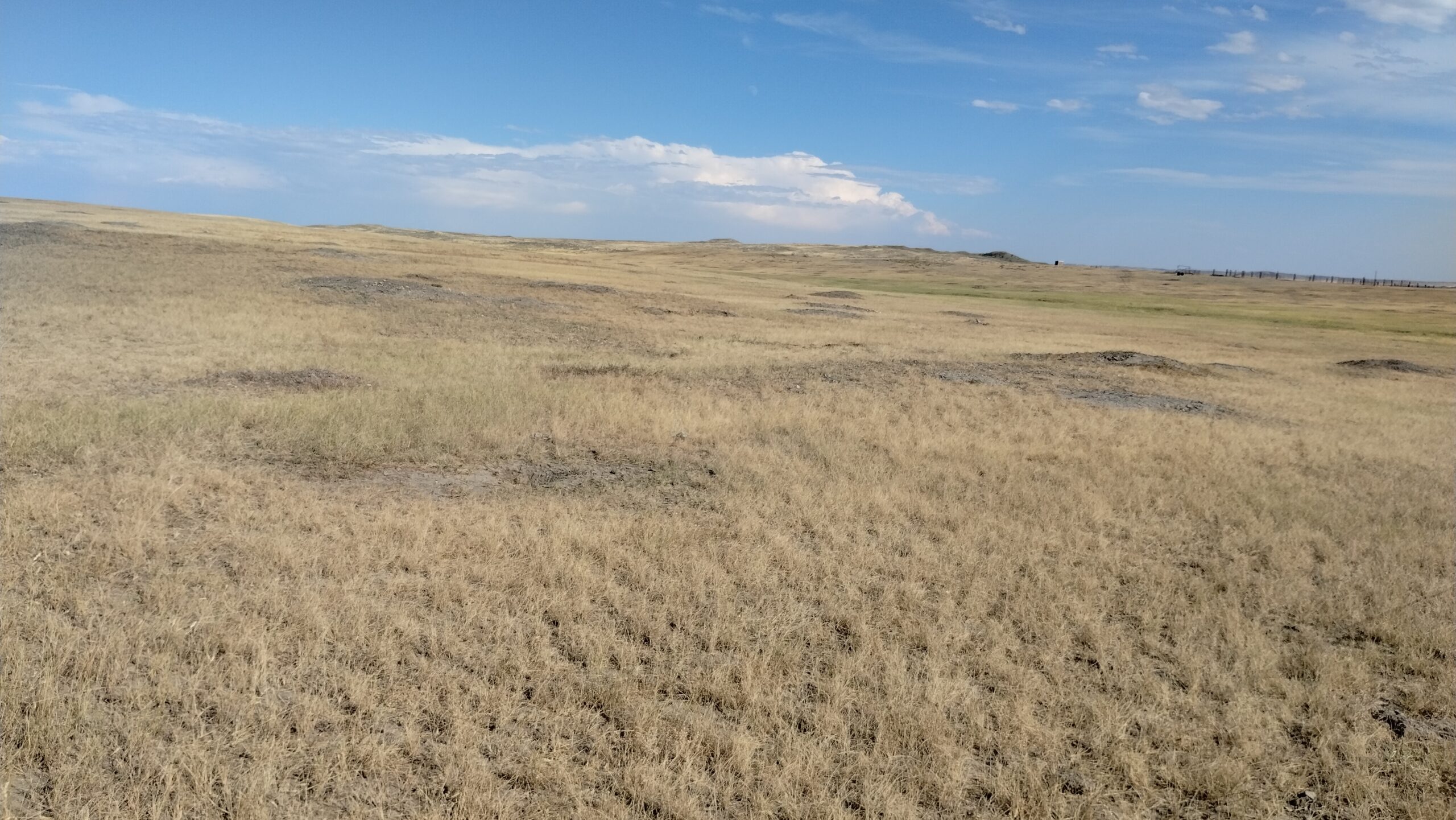
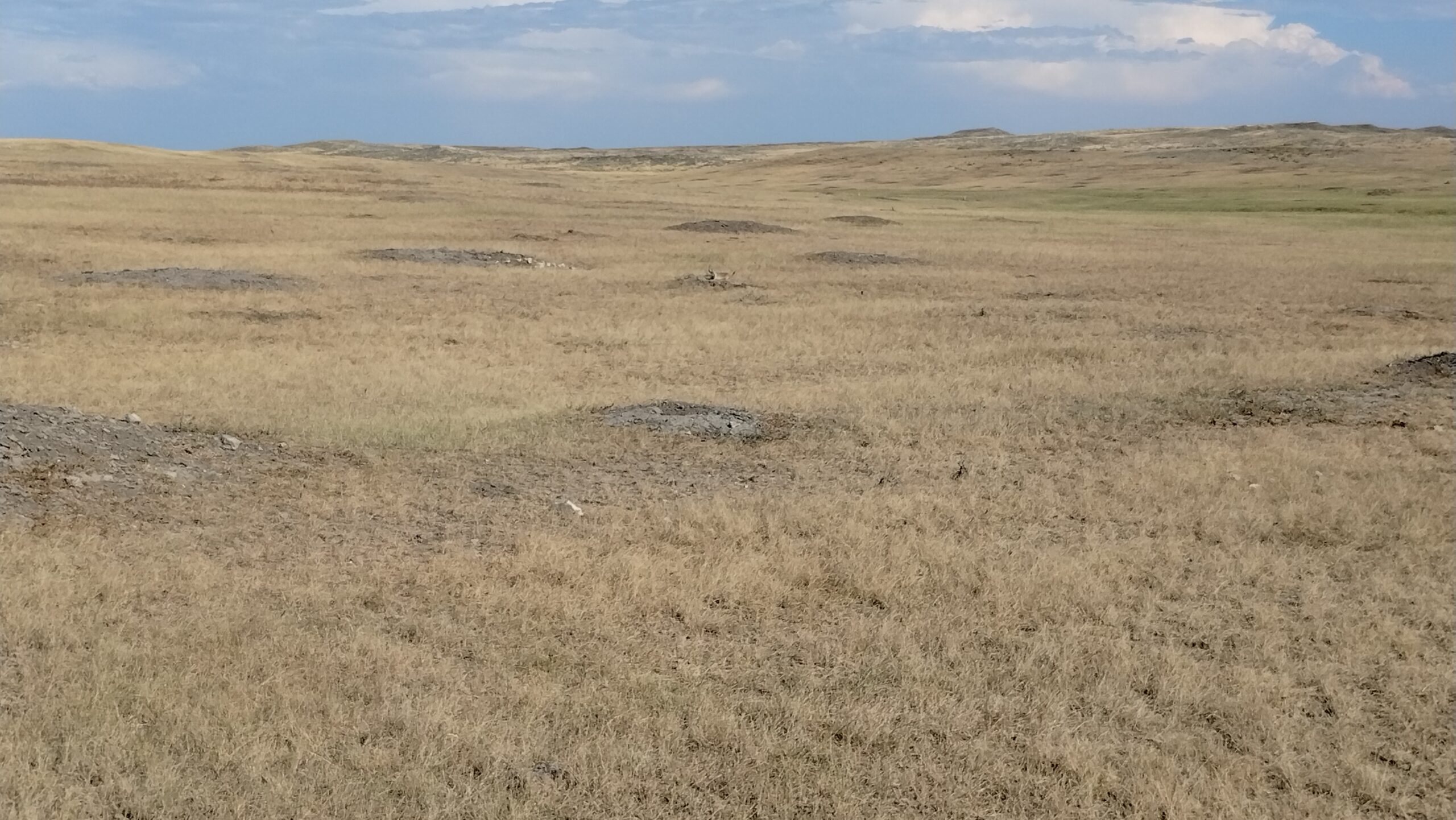
Prairie dog towns. Prairie dogs will “chirp” to warn others of danger, then disappear underground if you get too close. Ranchers despise them because 1) they carry actual, literal Bubonic Plague and 2) cows step in the burrows and break their legs.
We drove on down the fenceline in Carol’s side-by-side and had a grand old time talking about ranching and cows and traveling and all the places I’d been across America. Carol was mightily impressed by my travels and that I would come out to this corner of the world at all. I told her I was mightily impressed her four kids managed to ranch 20,000 acres surrounding the property.
“Oh yeah, that’s pretty small holdings out here. Tiegen Ranch is 50,000 acres.”
50,000 acres. An area larger than DC and inhabited only by cows. Jesus Christ.
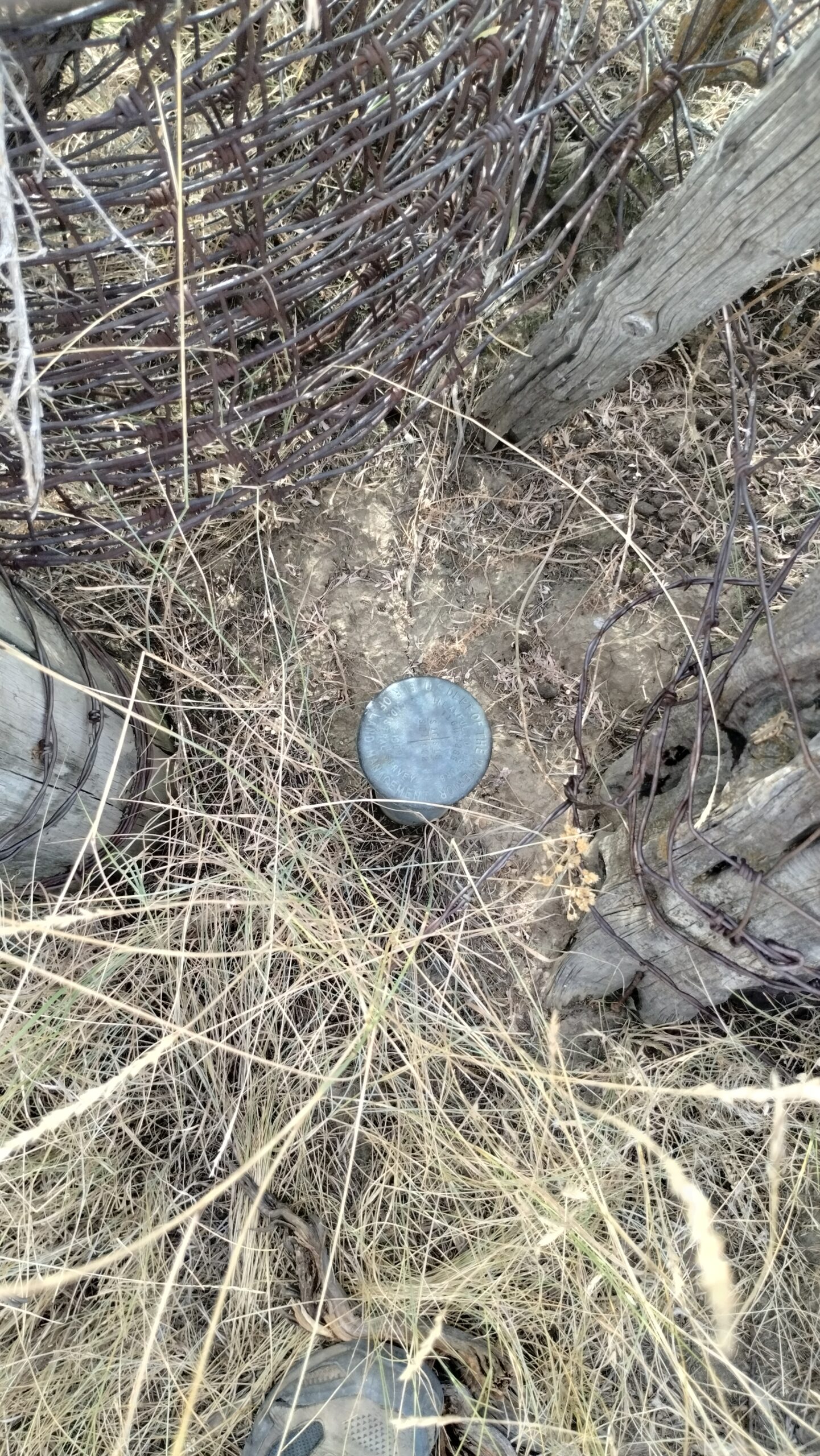
Eventually we got to the end of the property and reached the only thing indicating our property exists at all: a single survey marker at the corner of the four sections in the area. There was still nothing to be found anywhere here in the middle of nowhere, aside from cactuses:
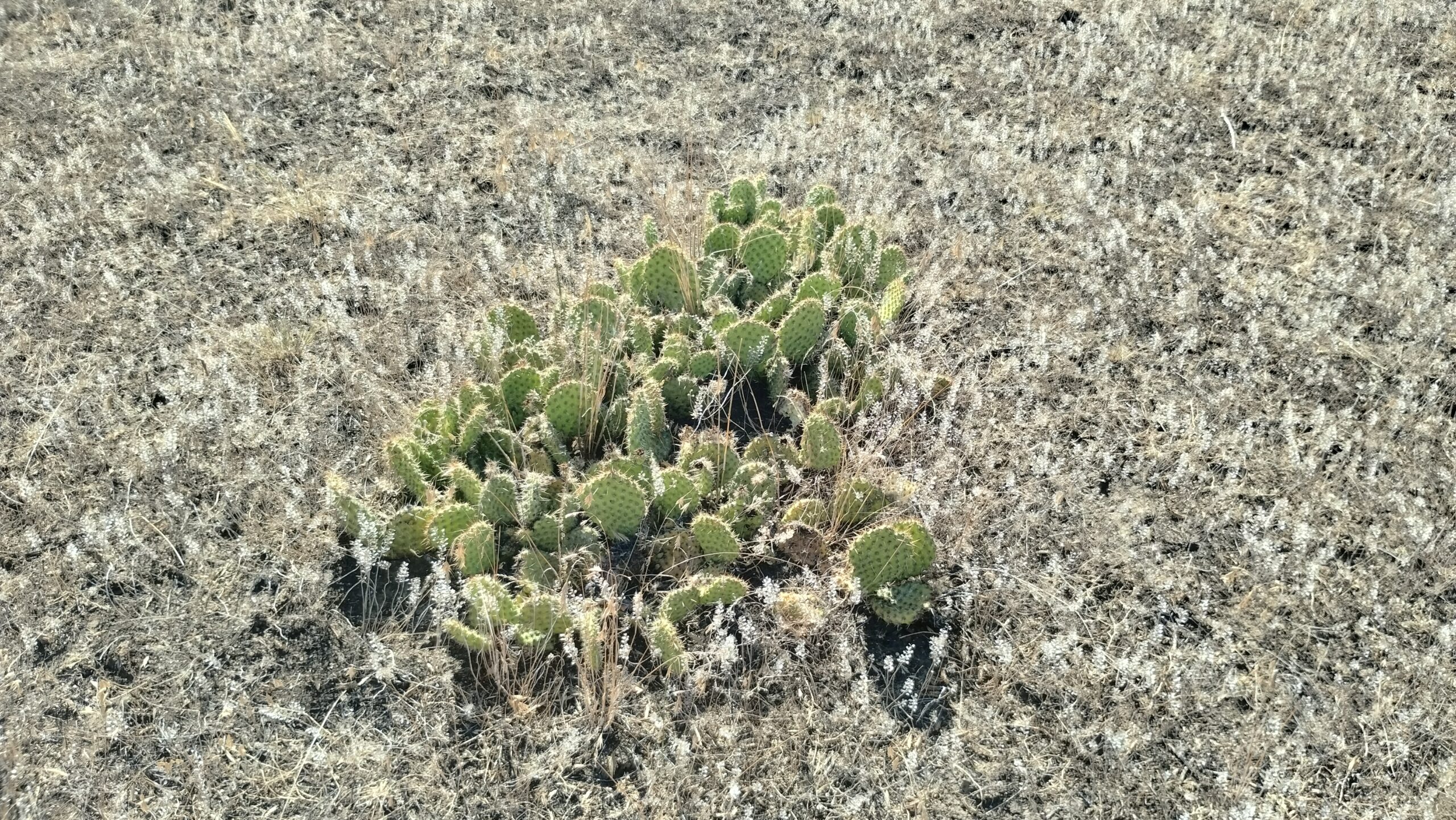
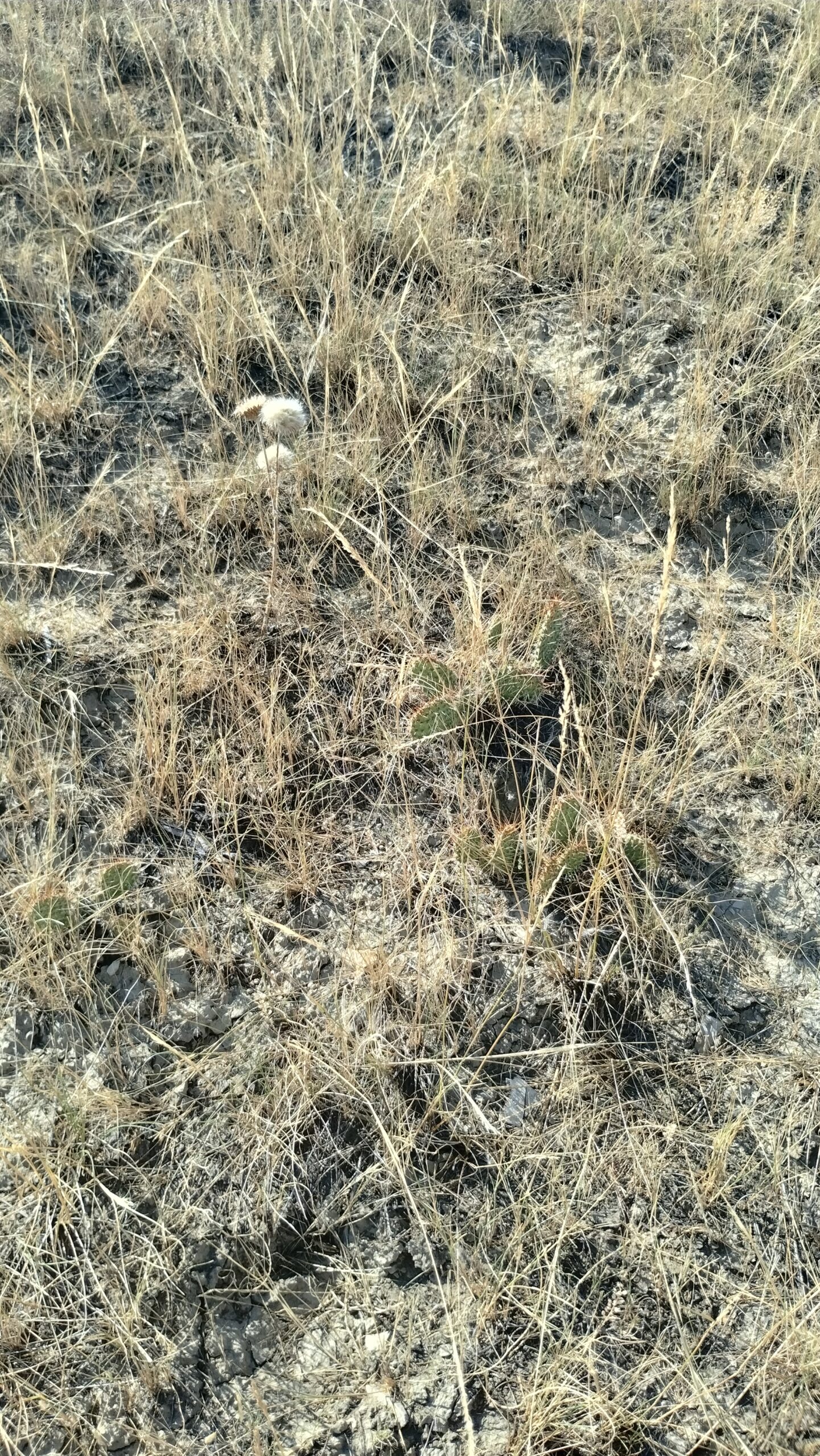
We stood around and took some pictures and kept on talking. I offered to help Carol with any chores she had as a thanks for the ride, so we happily drove around and checked on water tanks and stock ponds and salt licks for the cows. Apparently the water tanks are necessary because the soil is full of alkali chemicals, and cows will get sick from drinking too much of the water that soaks up those chemicals.
One water tank we drove up to was spilling over the sides, plentifully full. “Has it been a pretty wet year for you guys?” I asked.
“Wettest on record!” Carol beamed with pride at the question. “We got a whole 14 inches of rain this year so far.”
14 inches of rain in a year. The weekly summer downpours in Virginia typically drop three to four inches per storm. Jesus, what difficult country this is!
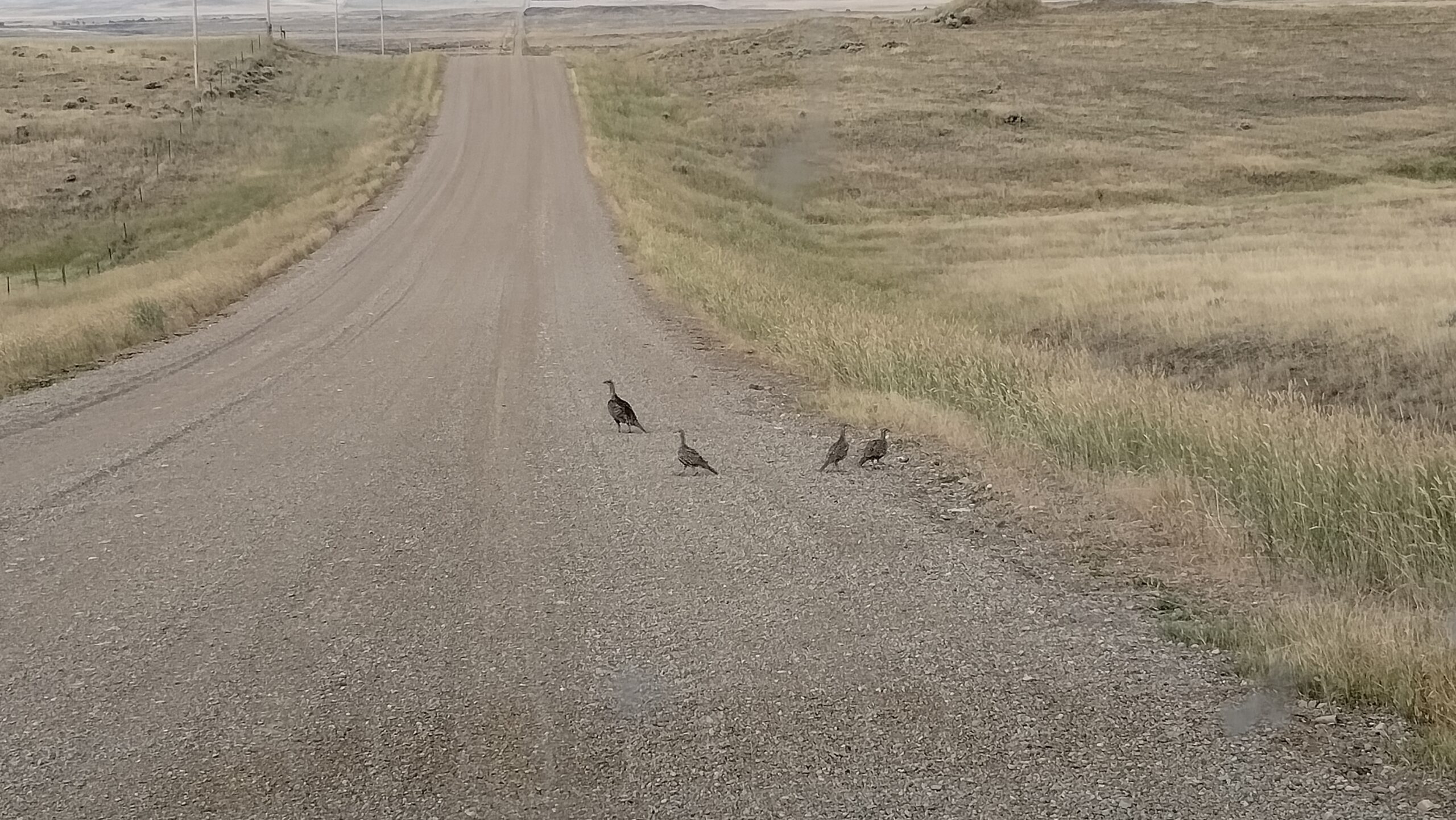
Prairie chickens.
Difficult country, but spent in pleasant company 🙂 Carol was plenty happy to have someone to take an interest in her and her kids livelihood and who actually cared enough to come see how this corner of the country works. I was plenty happy for the ride and the guided tour of cattle country. Eventually, she dropped me off at my car and we went our separate ways. I was glad again for the ride, A) for the companionship and the guided tour, but B) because I also just beat the rain, and wouldn’t have done so without the help:
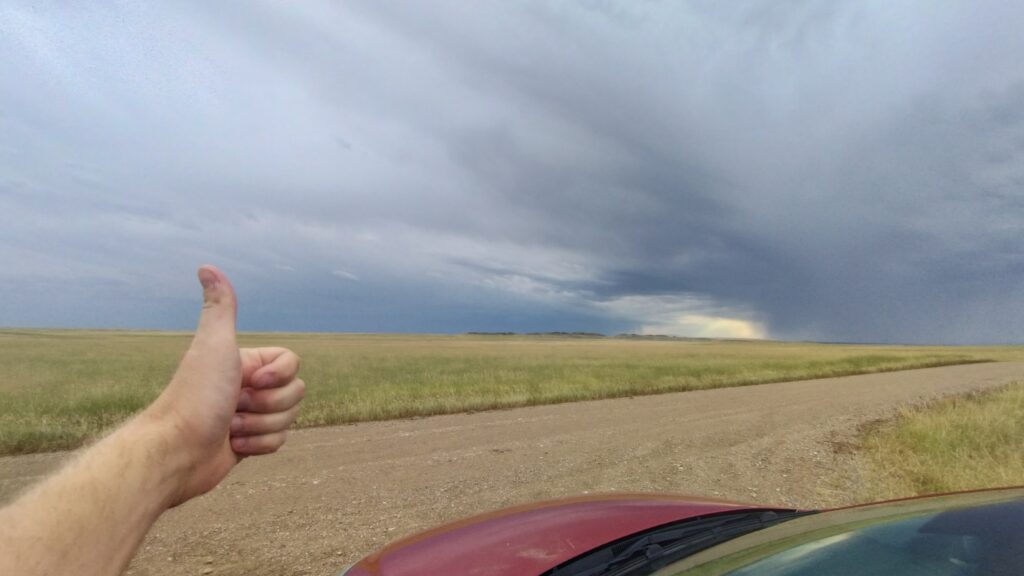
I rambled back into the Petroleum County’s only town, Winnet:
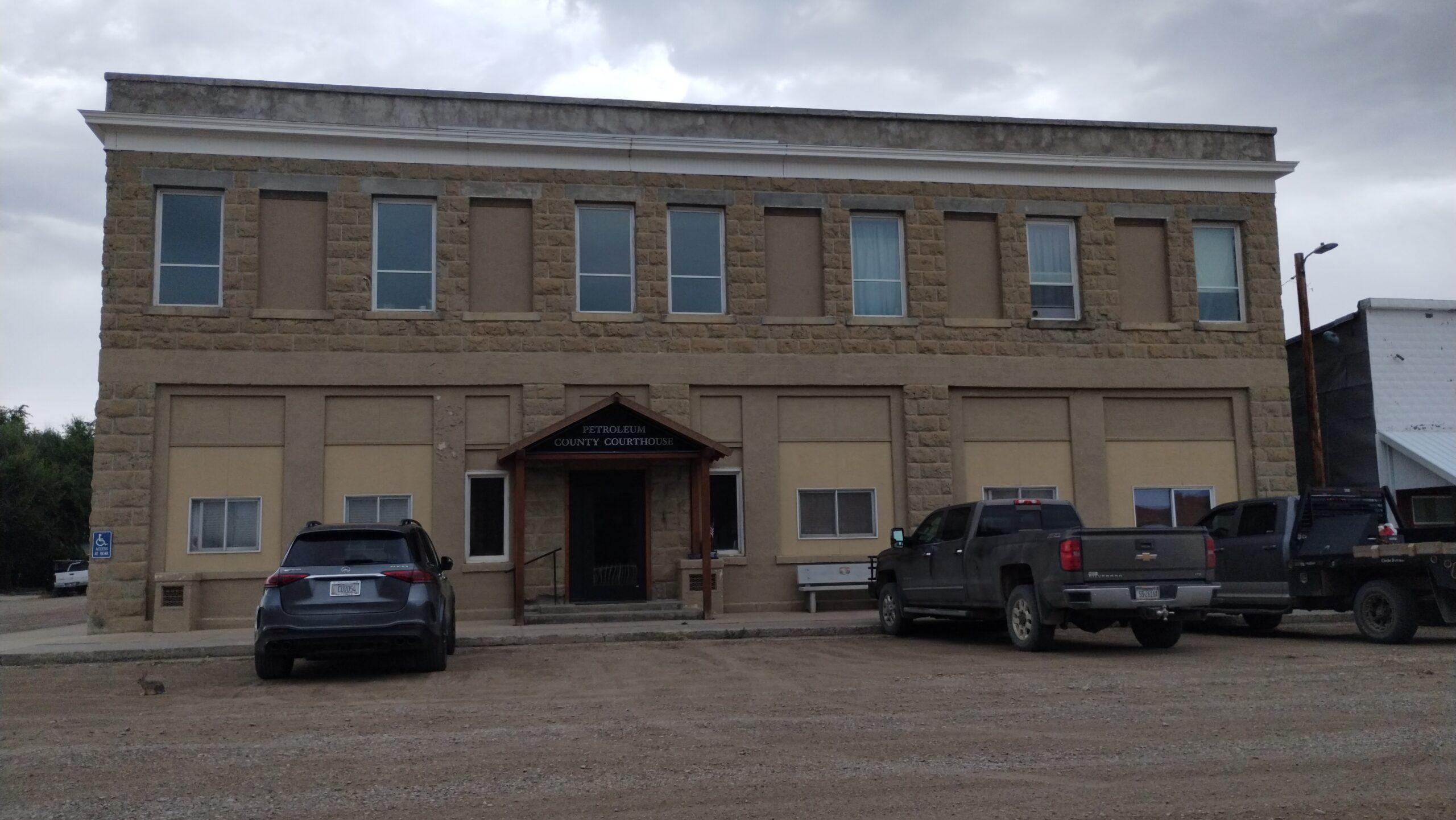
Petroleum County Courthouse.
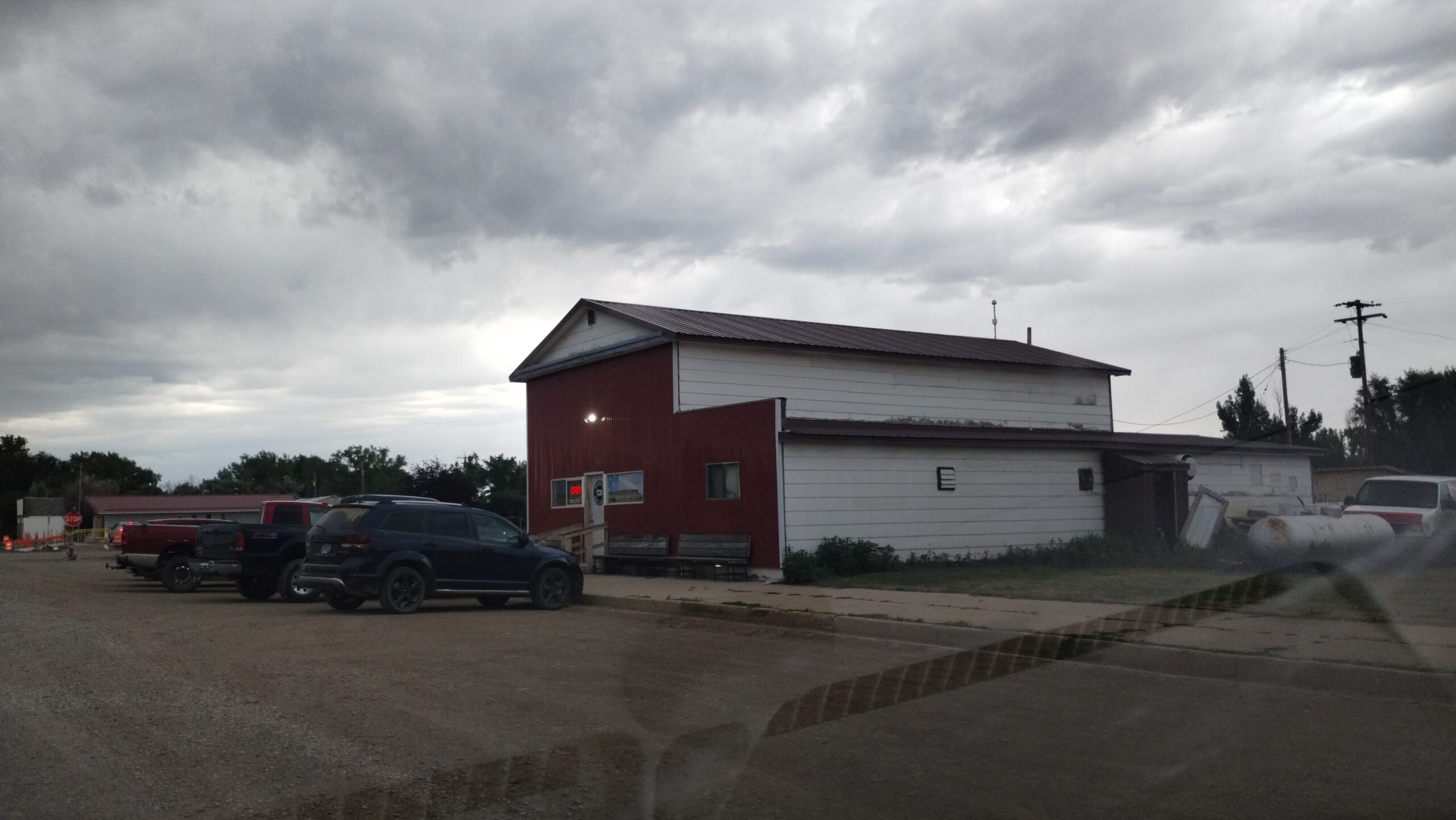
The Winnett Bar, and only non-ranching employment in the county.
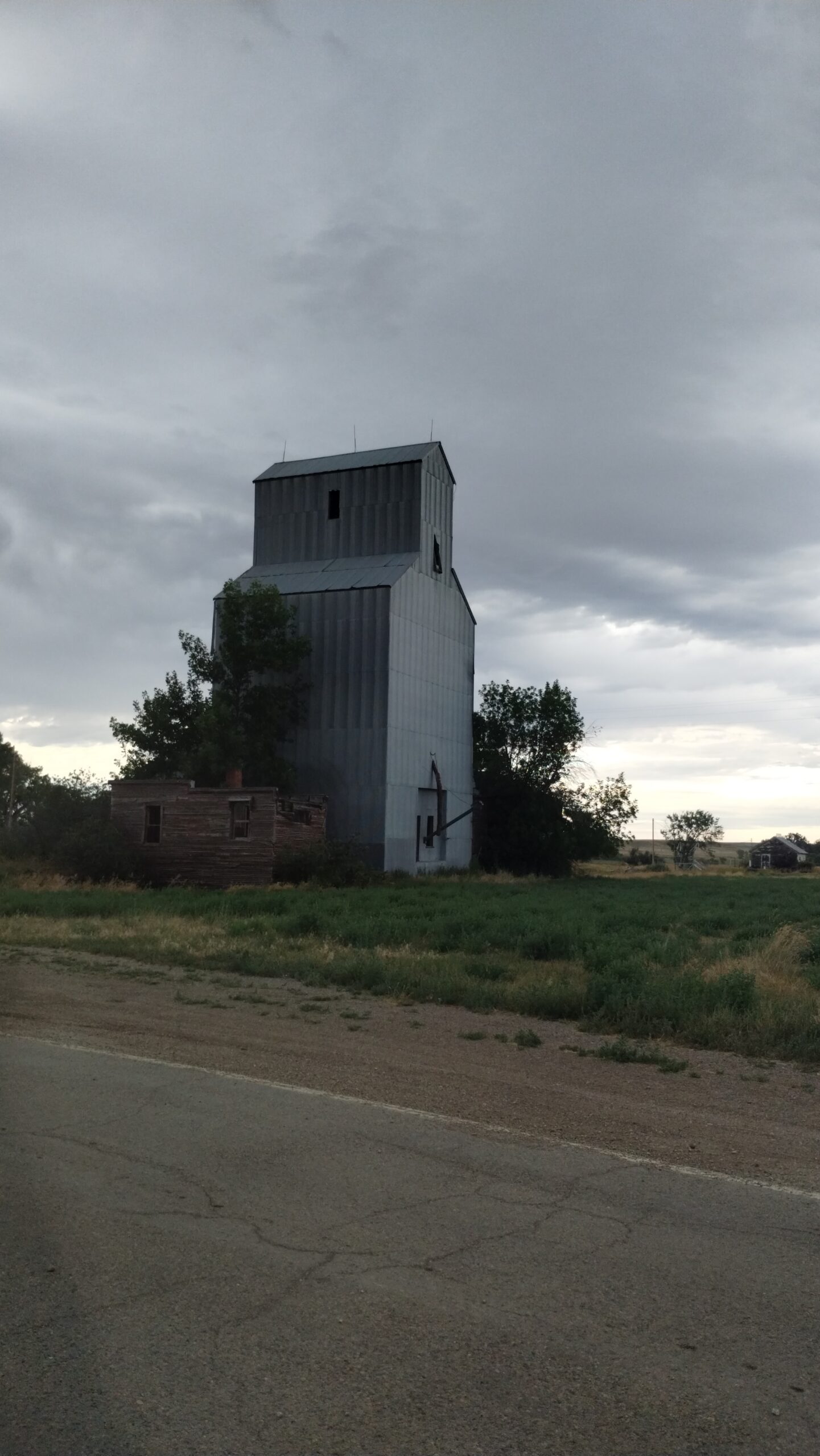
An old grain elevator. How they ever coaxed anything out of this ground other than sagebrush is a mystery to me.
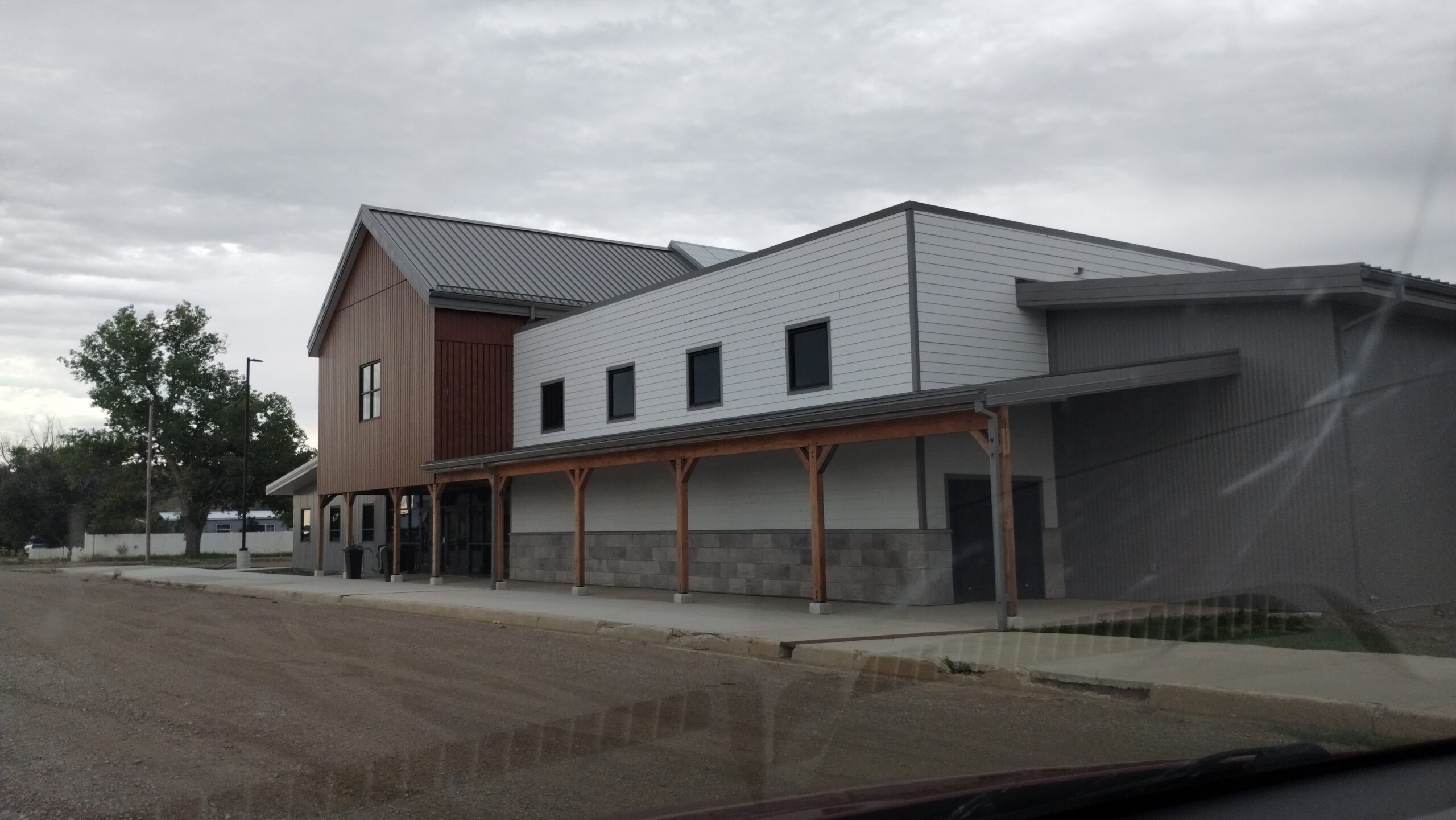
Community center, new this year! I was actually pretty impressed by this tbh.
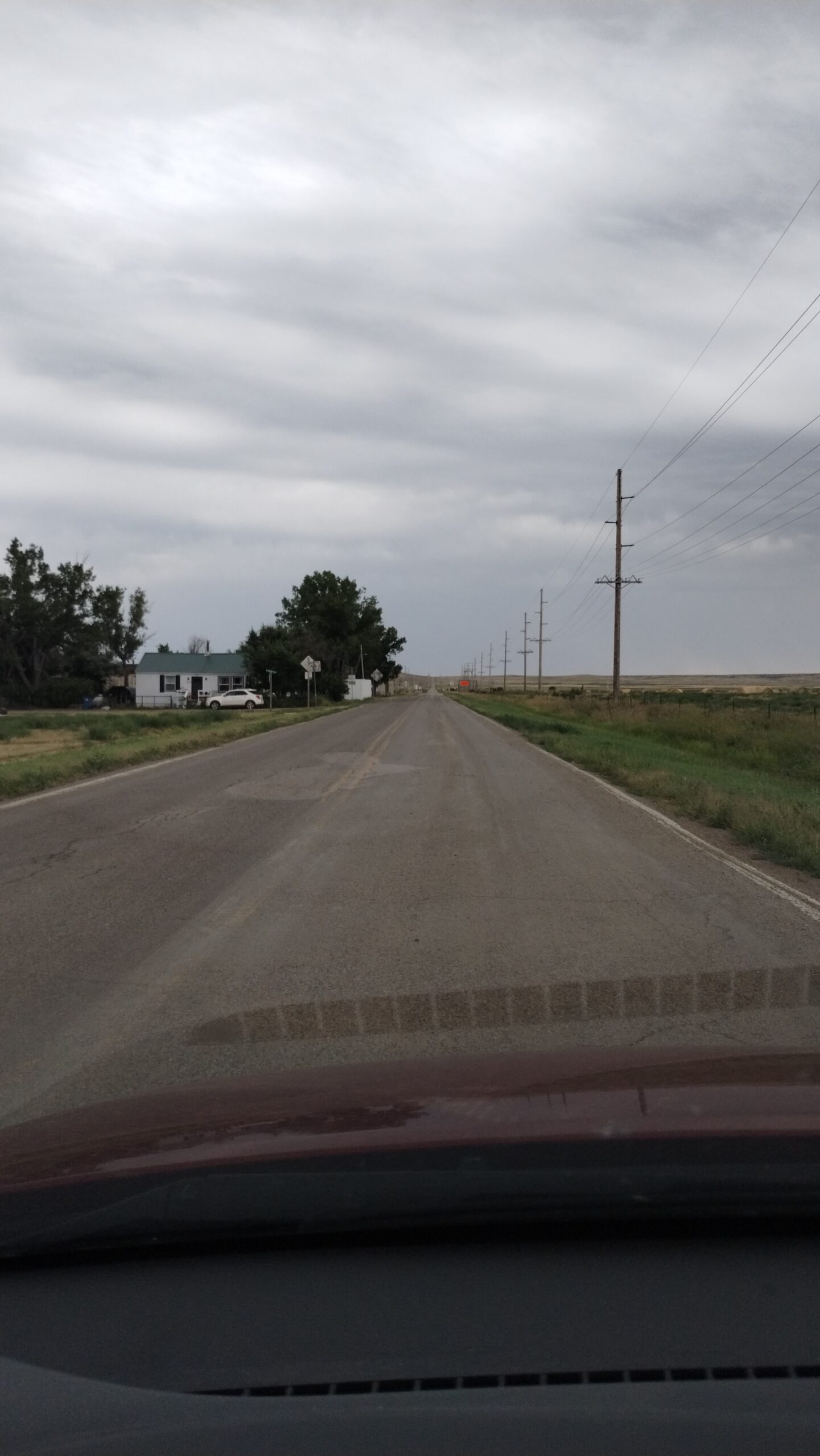
The road back to Billings.
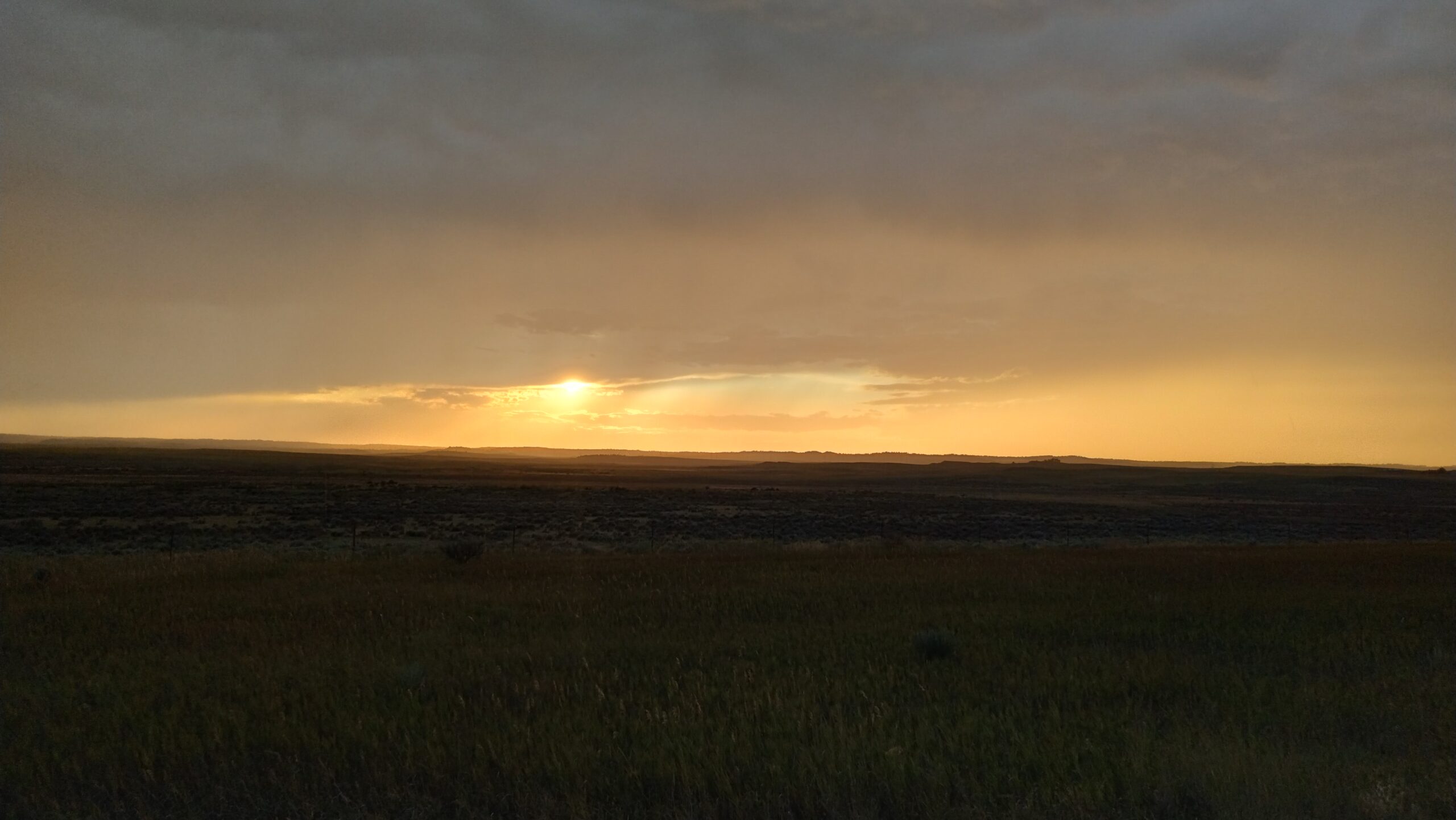
A nice end to the day.
Some adventures on this trip are obvious in their scope and awesomeness: hiking Grand Teton, climbing Yosemite Falls, getting startled by mountain lions in Olympic National Park. But some adventures are small and obscure. And in many ways they are just as fun, because they are ours, and we take them with us forever. What a lovely little thing to exist in the world 💙.
That’s all for now,
Stay well everyone,
Evan 💙
P.S. On a promise to my dad, I dug up a cactus from the family property and shipped it back to Michigan:
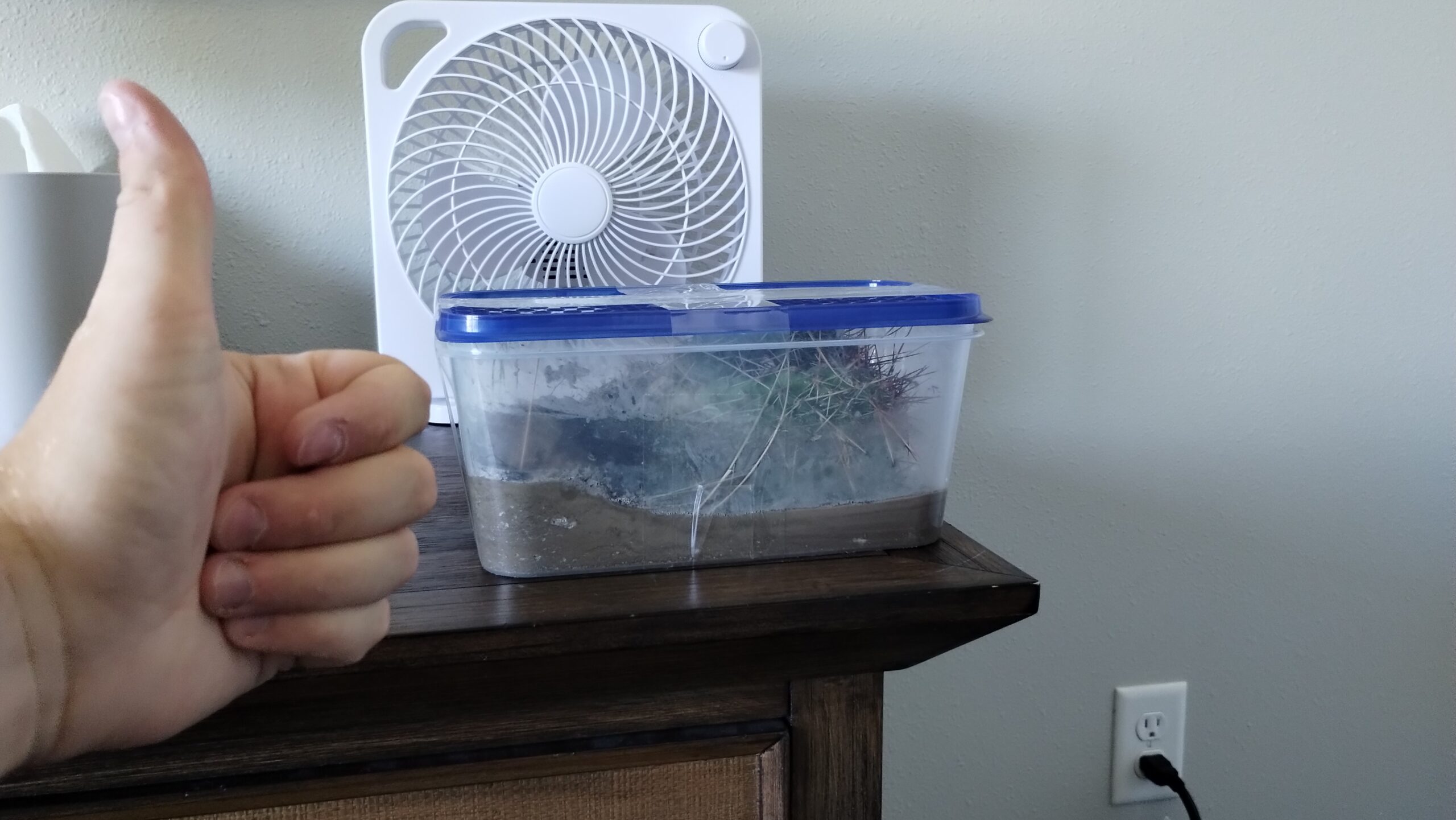
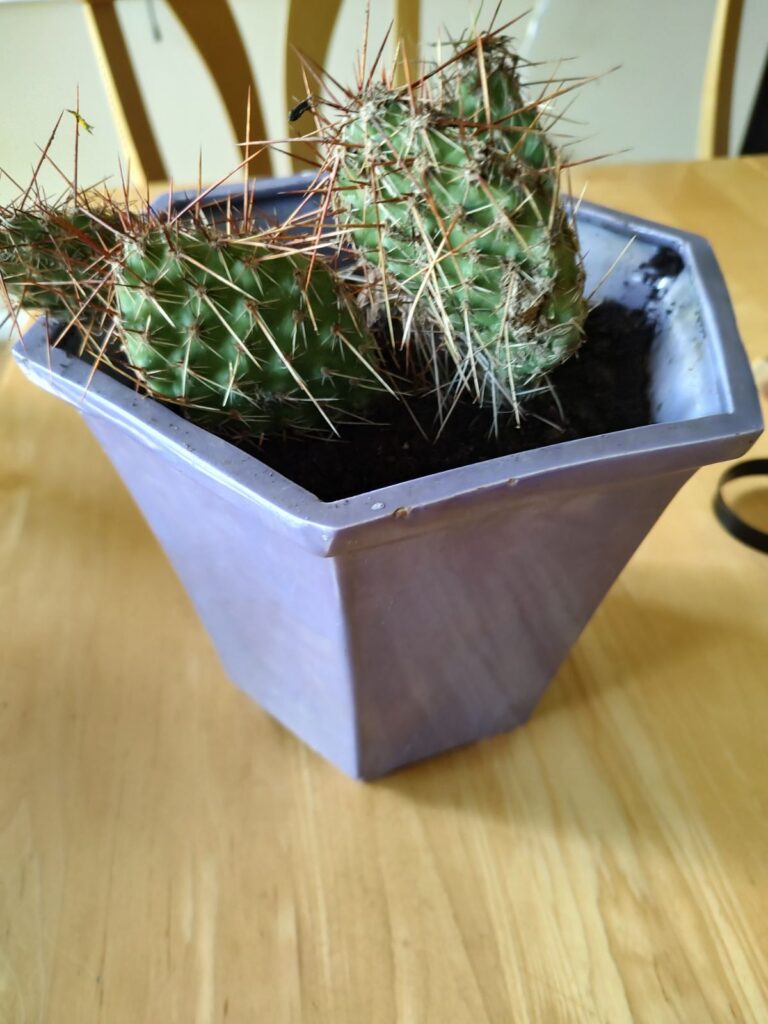
It’s a lot like Petroleum County: it’s not much, but it’s ours 💙.